Moaning Myrtle
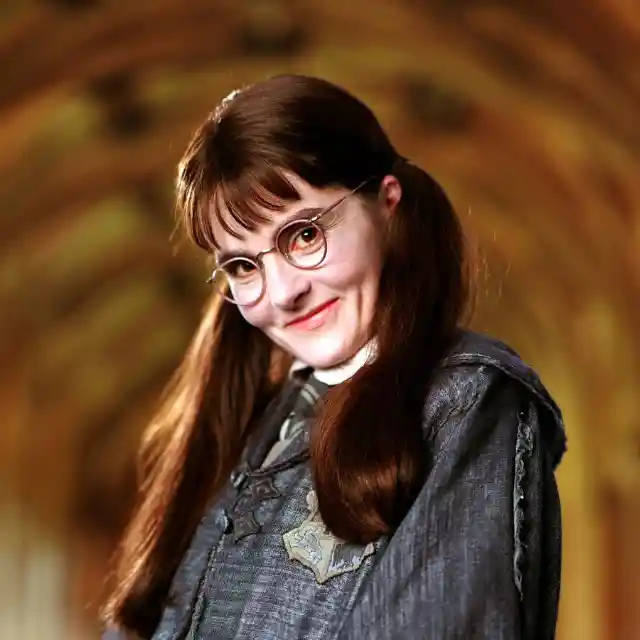
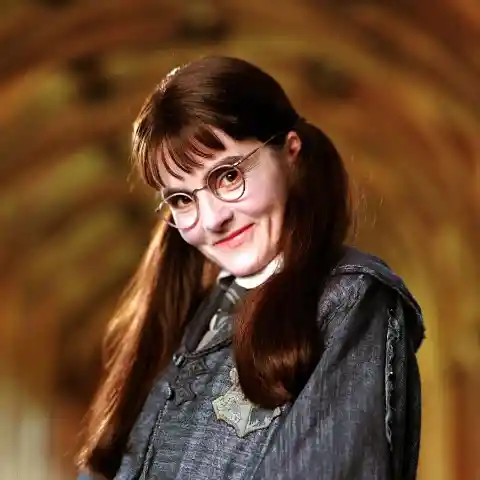
Moaning Myrtle, a well-known ghost at Hogwarts, has a story that's both tragic and intriguing. She became a ghost after a fateful encounter in the girls' bathroom. While hiding in a stall, crying, she unknowingly became a victim of a dark plot. Tom Riddle, who would later become known as Lord Voldemort, had opened the Chamber of Secrets, unleashing a deadly creature.
The creature, known as the Monster of Slytherin or a basilisk, was commanded by Riddle to eliminate any potential witnesses. Myrtle, unfortunately, was in the wrong place at the wrong time. The last thing she ever saw was the basilisk's large, yellow eyes. This moment marked the end of her life and the beginning of her existence as a ghost, forever haunting the bathroom where she met her untimely demise.
Bellatrix Lestrange
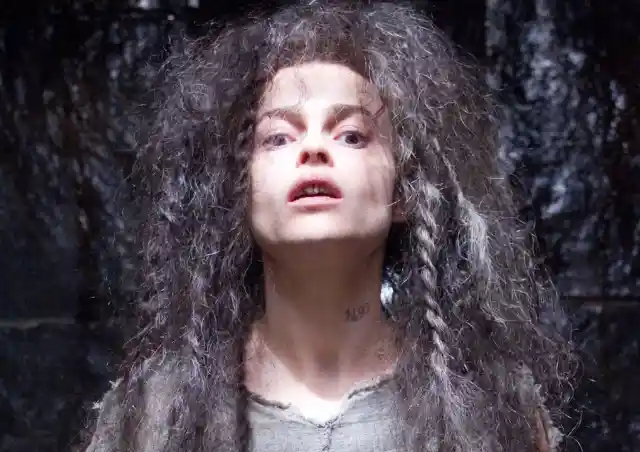
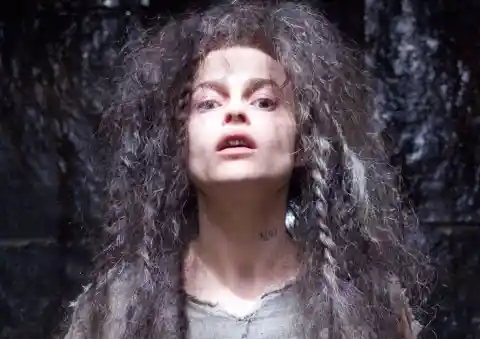
Bellatrix Lestrange, a notorious Death Eater, was feared for her ruthless use of dark magic. Her loyalty to Voldemort was unmatched. She was infamous for using the Avada Kedavra curse, a spell that caused instant death. This curse led to the tragic end of her own cousins, Sirius Black and Nymphadora Tonks. Her actions showed her complete disregard for family ties and her deep commitment to Voldemort's cause.
Her cruelty didn't stop there. Bellatrix was also known for her use of the Cruciatus curse, a spell that inflicted unbearable pain. She used this curse on Frank and Alice Longbottom, Neville's parents, with such intensity that it drove them to insanity. This act of brutality highlighted her merciless nature and her enjoyment in causing pain to others. Bellatrix's actions made her one of the most feared followers of Voldemort.
Molly Weasley
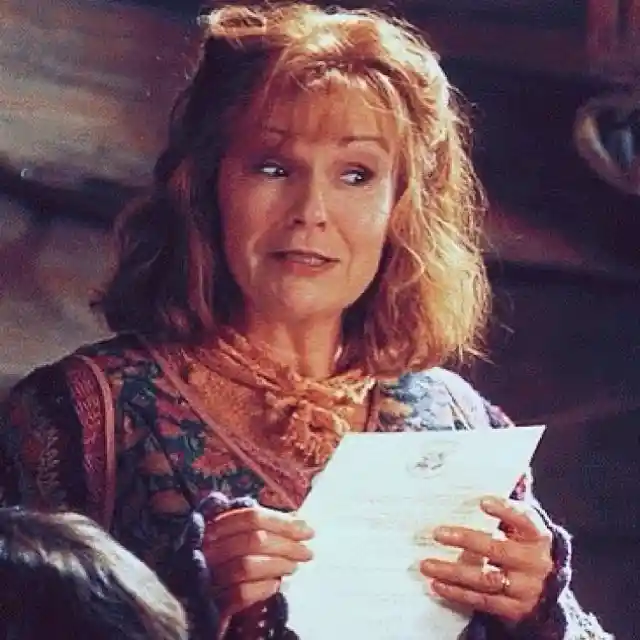
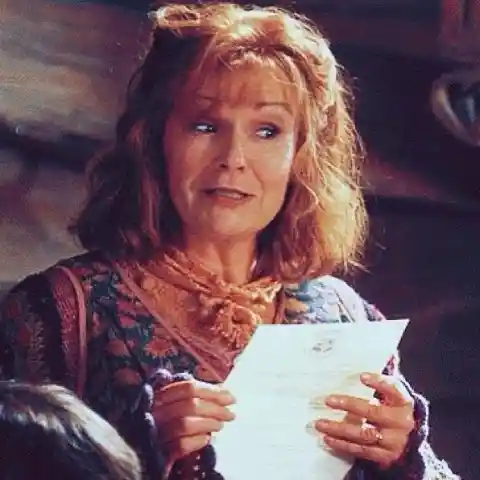
In a surprising turn of events, Molly Weasley emerged as the hero against Bellatrix Lestrange. Known mostly as a loving mother and dedicated housewife, Molly showed incredible bravery and strength. Her fierce protection of her daughter, Ginny, led to a dramatic confrontation with Bellatrix during the Battle of Hogwarts. This moment was a testament to her courage and love for her family.
Molly's battle with Bellatrix was intense and unexpected. As Bellatrix aimed a curse at Ginny, Molly stepped in, fueled by a mother's fury. Her famous last words to Bellatrix, “Not my daughter, you bitch!” echoed powerfully. This scene was a striking example of how deep a mother's love can go, proving that even the most ordinary person can rise to extraordinary heroism in the face of danger.
Cedric Diggory
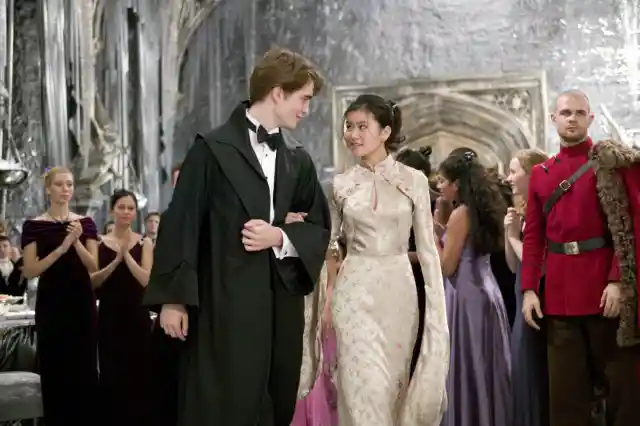
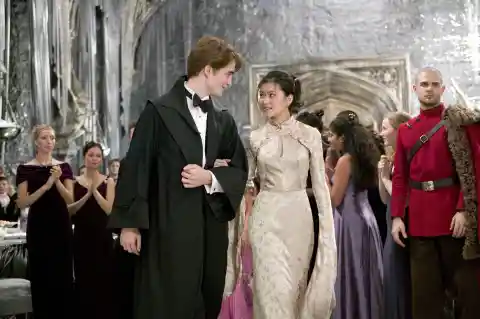
Cedric Diggory's tragic end marked a turning point in the Harry Potter series. His death was not just a loss of a beloved character but a grim reminder of the rising darkness. Cedric, known for his fairness and bravery, met his untimely fate in a sinister plot. This event shook the wizarding world, signaling the return of a great evil.
The impact of Cedric's death was profound. It served as a wake-up call to all, confirming the dreaded truth that Voldemort had indeed returned. This realization brought fear and urgency, uniting many in the fight against dark forces. Cedric's memory became a symbol of the cost of evil and the need for courage in the face of danger.
Ron Weasley


Ron Weasley's journey as Harry Potter's friend was filled with unexpected twists, one of the most shocking being the true identity of his pet rat, Scabbers. For years, Scabbers was just a pet to Ron, but in a startling revelation, he was unmasked as Peter Pettigrew. Pettigrew, a known traitor, had been hiding in plain sight, using his animagus form to spy and stay close to Harry.
This discovery was a huge shock to Ron. He had trusted Scabbers, never suspecting his pet could be someone so evil. Learning that Scabbers was Pettigrew, a man who betrayed Harry's parents, was a betrayal that hit close to home. It was a moment that highlighted the dangers and deceptions lurking in their world, even in the most familiar places.
Sirius Black
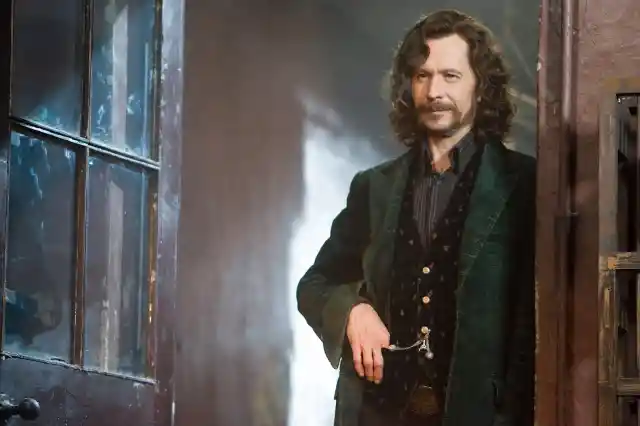
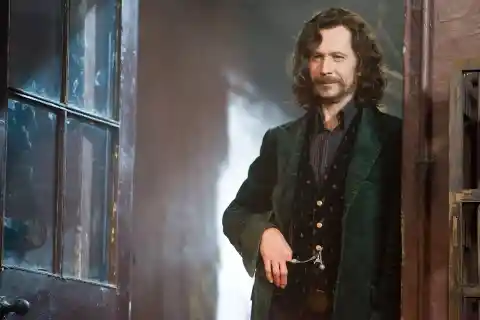
Sirius Black's life was a tale of tragedy and injustice. Disowned by his family for rejecting their dark beliefs, he faced further heartbreak when betrayed by Peter Pettigrew. Wrongly accused, Sirius spent twelve long years in the dreadful Azkaban prison, suffering for a crime he never committed. His life was a constant battle against the injustices that plagued him.
After his daring escape from Azkaban, Sirius lived a life of hiding, constantly on the run. Yet, in that brief period when he became Harry Potter's guardian, he found a glimmer of happiness. Tragically, this happiness was short-lived. During a fierce battle, he was killed by Bellatrix Lestrange, his cousin, ending his troubled life in a moment of shocking brutality. Sirius's story is a poignant reminder of the cost of loyalty and the harsh realities of a world divided by dark forces.
Sybill Trelawney
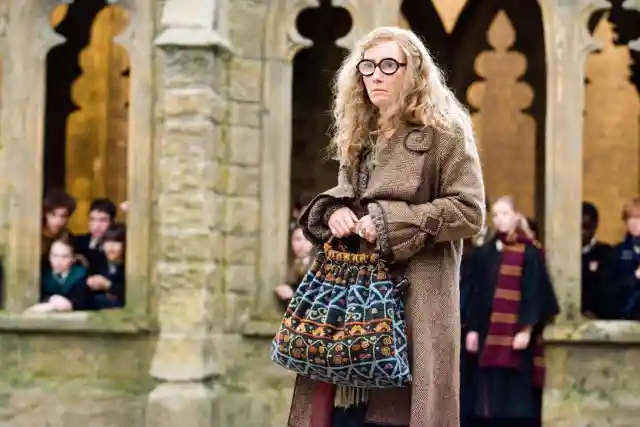
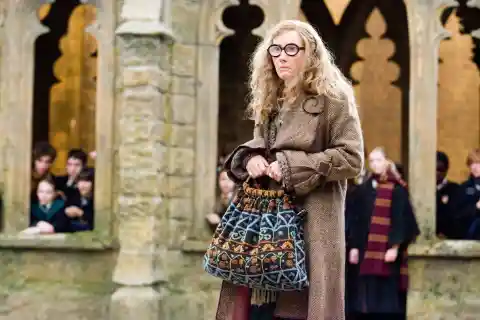
Sybill Trelawney, the Divination professor at Hogwarts, played a crucial role in the Harry Potter saga. Her prophecy about Harry Potter and Lord Voldemort set the stage for their ultimate confrontation. Her words, “... and either must die at the hand of the other for neither can live while the other survives,” were pivotal in defining the fate of both characters. This prophecy highlighted her true abilities as a Seer, despite her often eccentric and vague predictions in class.
Given her deep understanding of Voldemort's dark power and intentions, it's understandable that her greatest fear, manifested as a Boggart, would be Voldemort himself. Trelawney, usually seen as quirky and not always taken seriously, had a profound insight into the dark forces at play. Her fear of Voldemort symbolized the widespread dread he instilled in the wizarding world and underscored the gravity of her prophecy.
Horace Slughorn
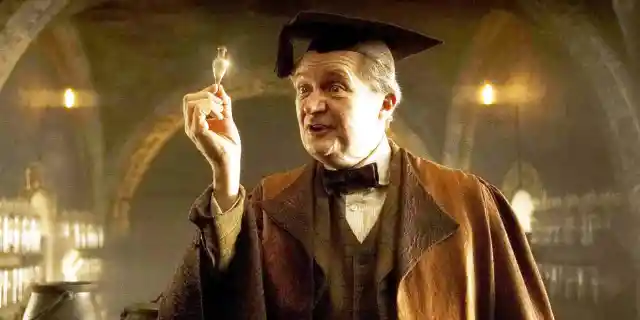
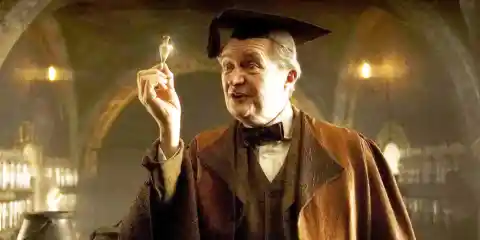
Horace Slughorn, known for his brilliance in Potions, harbored a dark secret that haunted him. His fondness for exceptionally talented students led him to favor Tom Riddle, who later became the feared Lord Voldemort. Slughorn's preference for such students was well-known, but his connection to Voldemort was a deeply guarded secret. This aspect of his past was something he desperately wished to forget, fearing the consequences of his inadvertent role in Voldemort's rise to power.
Harry Potter, aware of Slughorn's secret, made it his mission to uncover the truth. He worked his way into Slughorn's circle of favored students, aiming to learn more about the professor's past with Voldemort. Harry's determination stemmed from the need to understand how Voldemort had become so powerful. His success in gaining Slughorn's trust and revealing the truth about the Horcruxes was a crucial step in the fight against Voldemort.
Nagini
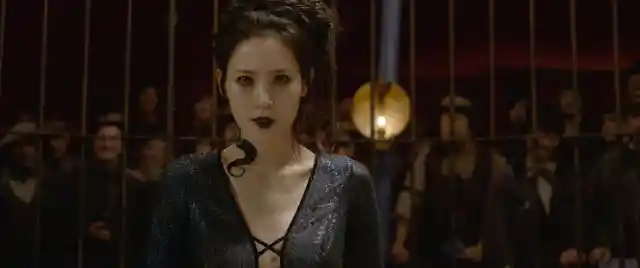
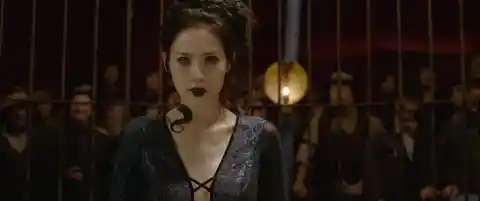
Nagini's story is a complex one, marked by her transformation from a human into a snake due to a curse. Initially, she wasn't inherently evil and even fought alongside Newt Scamander. However, her fate took a dark turn with her final transformation, leading her to become a close ally of Lord Voldemort. Her loyalty to Voldemort was unwavering, making her an integral part of his sinister plans.
One of Nagini's most significant roles in Voldemort's quest for power was her venom, which was crucial in creating the potion that restored Voldemort to full strength. This act overshadowed her other deeds, like attacking Arthur Weasley. Her venom's role in Voldemort's resurrection highlighted the depth of her involvement in his dark deeds, making her an essential character in the Harry Potter series.
Neville Longbottom
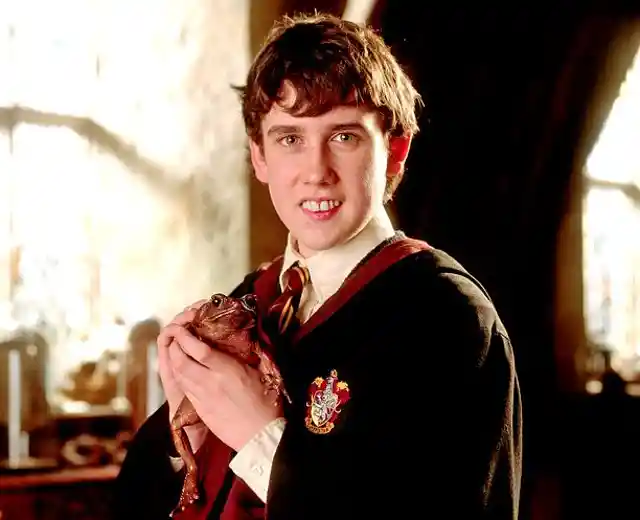
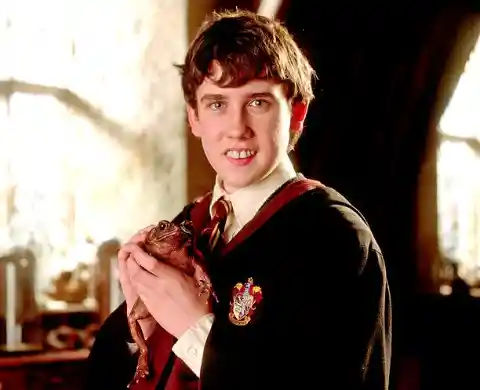
Neville Longbottom's journey from a timid, clumsy boy to a brave hero is a remarkable aspect of the Harry Potter series. Initially seen as weak and forgetful, Neville's character evolved significantly over the years. His growth was gradual but powerful, showing that courage can come from the most unexpected places. His transformation was a testament to his inner strength and resilience, proving that even the most unlikely individuals can rise to greatness.
In a defining moment, Neville emerged as a key figure in the battle against Voldemort. His act of drawing the Sword of Gryffindor and destroying Nagini, the last Horcrux, was pivotal. This courageous deed was a turning point in the battle and Neville's journey. It symbolized his complete transformation and underscored the theme that true bravery can manifest in various forms.
Quirinus Quirrell
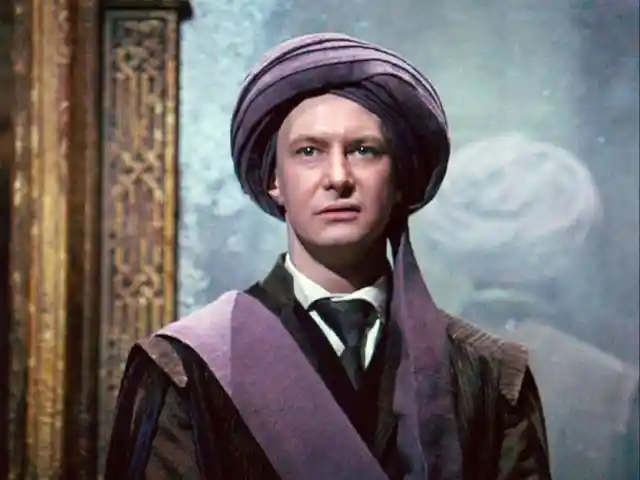
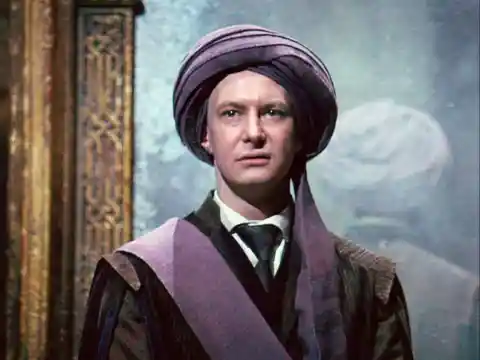
Quirinus Quirrell's encounter with Voldemort dramatically changed his life. Initially a timid and unassuming professor, Quirrell's sabbatical led him to a fateful meeting with the Dark Lord. This encounter transformed him from a mere teacher into an unwilling accomplice in Voldemort's sinister plans. Quirrell's vulnerability made him an easy target for Voldemort, who was seeking a way to regain strength and return to power.
Voldemort's decision to use Quirrell's body as a host marked a dark chapter in the Hogwarts history. Their attempt to kill Harry Potter, the boy who lived, was a crucial moment in the series. However, their plan ultimately failed, leading to Quirrell's demise. This event not only ended Quirrell's life but also marked the beginning of Harry's long battle against Voldemort and his forces.
Dobby
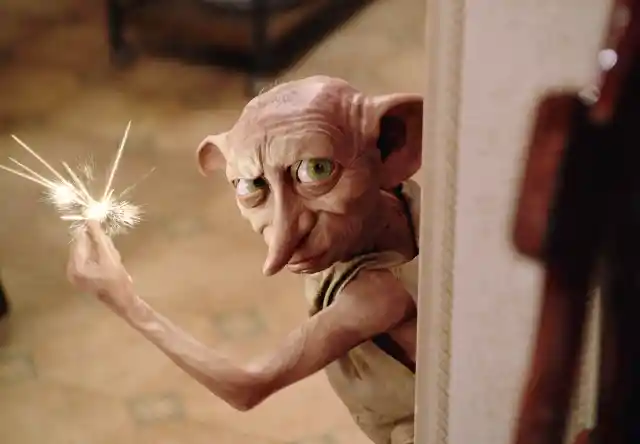
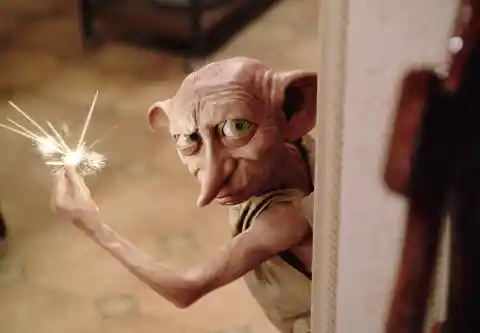
Dobby, the house-elf, became a symbol of loyalty and bravery in the Harry Potter series. His journey from a maltreated servant to a free elf dedicated to helping Harry Potter was heartwarming. Dobby's actions, often driven by his deep admiration for Harry, showed his unwavering commitment to fighting against dark forces. His presence brought a unique blend of humor and courage to the story, making him a beloved character among fans.
The circumstances of Dobby's death added a profound layer of sadness to his character. His final moments, marked by his last words, "Harry Potter," highlighted his dedication to the boy who had a significant impact on his life. Dobby's death was not just a loss of a character; it was the end of the journey of a selfless and courageous friend. His sacrifice was a poignant reminder of the cost of the battle against evil and the power of true loyalty.
Gilderoy Lockheart
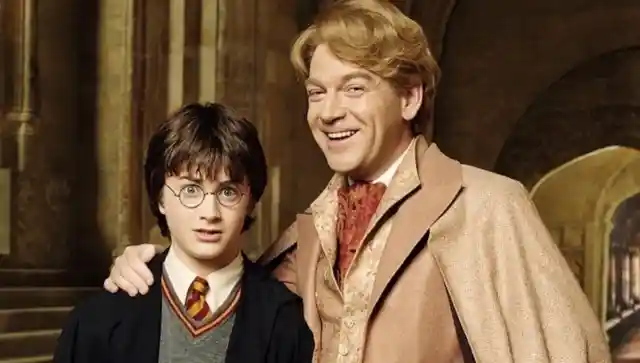
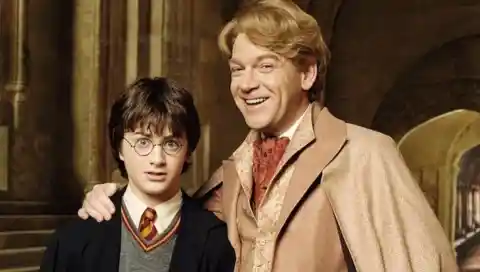
Gilderoy Lockhart, celebrated for his adventurous tales and numerous awards, had a secret that made him infamous in the wizarding world. His books, filled with daring exploits and heroic deeds, were based on the experiences of other witches and wizards. Lockhart used the Memory Charm to erase their memories, claiming their achievements as his own. This deceitful practice was the true source of his fame, making him a controversial figure among those who knew the truth.
Lockhart's arrival at Hogwarts as a Defence Against the Dark Arts teacher was met with mixed reactions. Students were initially dazzled by his fame, but his true nature slowly came to light. His unethical methods and lack of genuine skill in magic were eventually exposed, revealing the man behind the facade. Lockhart's story serves as a cautionary tale about the dangers of fame built on lies and the importance of integrity.
Colin Creevey
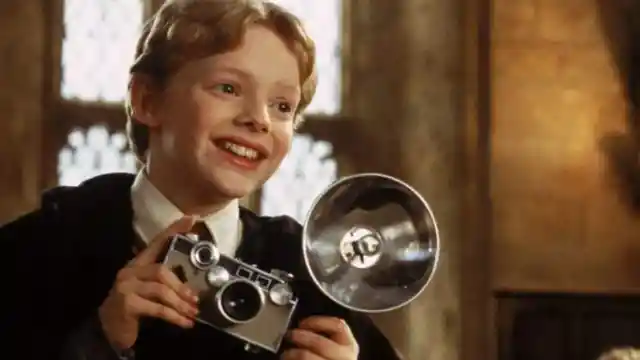
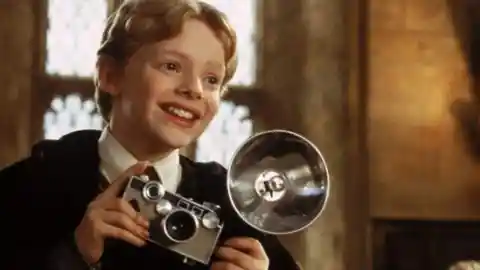
Colin Creevey's passion for photography played a unique and life-saving role in his time at Hogwarts. Known for his enthusiasm and admiration for Harry Potter, Colin was often seen with his camera, capturing moments around the school. His love for taking pictures was more than just a hobby; it became a crucial part of his identity at Hogwarts. This seemingly innocent interest in photography unexpectedly turned into his shield against danger.
During the incident with the Basilisk, released from the Chamber of Secrets, Colin's camera became his protector. When he encountered the Basilisk, a creature whose gaze could kill, he viewed it through his camera lens. This act inadvertently saved his life, as the camera's lens prevented direct eye contact with the Basilisk. Colin's survival in this perilous situation highlighted the unexpected ways in which one's passions and hobbies can have life-altering consequences.
Xenophilius Lovegood
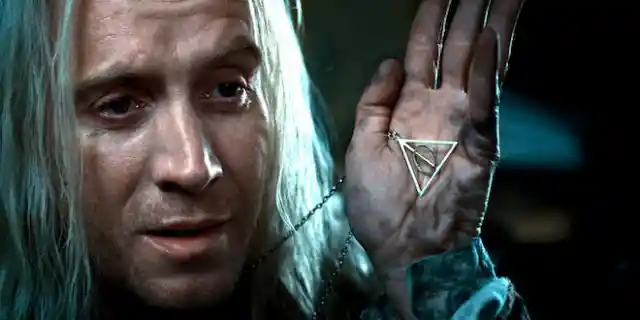
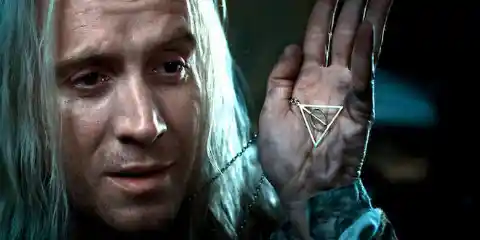
Xenophilius Lovegood, known for his eccentric beliefs and as the editor of The Quibbler, faced a heart-wrenching dilemma when his daughter Luna was taken by Death Eaters. His usual quirky and unconventional demeanor was overshadowed by a father's desperation. In a moment of fear and love for his daughter, he made the difficult decision to betray Harry Potter and his friends. This act was a stark contrast to his earlier support for Harry and belief in the Deathly Hallows, showing the complex nature of his character.
The situation at the Lovegood house was tense and dangerous. Harry, Ron, and Hermione, unaware of Xenophilius's intentions, found themselves in a precarious position. However, their quick thinking and resourcefulness allowed them to escape just in time. This incident highlighted the harsh realities of the war against Voldemort, where even the most steadfast allies could be forced into impossible choices. Xenophilius's actions, driven by a father's love, added depth to the story, illustrating the personal sacrifices and moral dilemmas faced during dark times.
Nearly Headless Nick
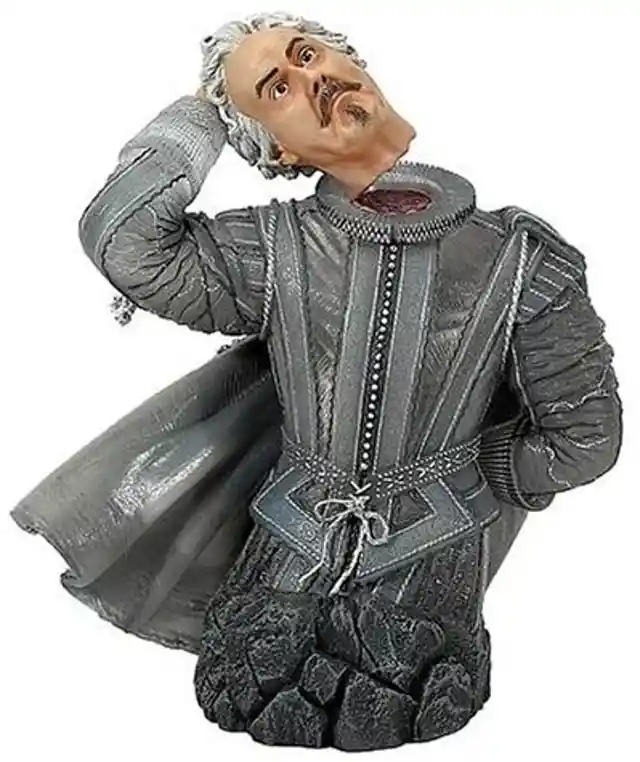
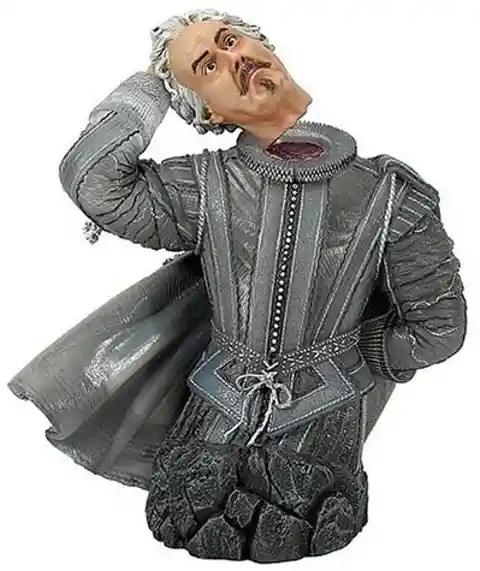
Sir Nicholas de Mimsy-Porpington, better known as Nearly Headless Nick, had an intriguing and somewhat tragic past. In the 15th century, he was a wizard who, despite good intentions, made a significant mistake. Attempting to use his magical skills to help Lady Grieve with her teeth, his spell backfired, causing her to grow tusks instead. This magical mishap led to dire consequences for Nick, showcasing the unpredictable nature of magic and its sometimes unintended results.
Nick's failed spell resulted in his sentencing to death, a common punishment for magical misdeeds in those times. However, his execution was botched due to a blunt axe, leaving his head only partially severed. This incomplete execution is what led to his nickname, "Nearly Headless Nick." His story, while somber, adds a layer of historical depth to the magical world of Hogwarts and serves as a reminder of the risks wizards faced in earlier times.
Fleur Delacour
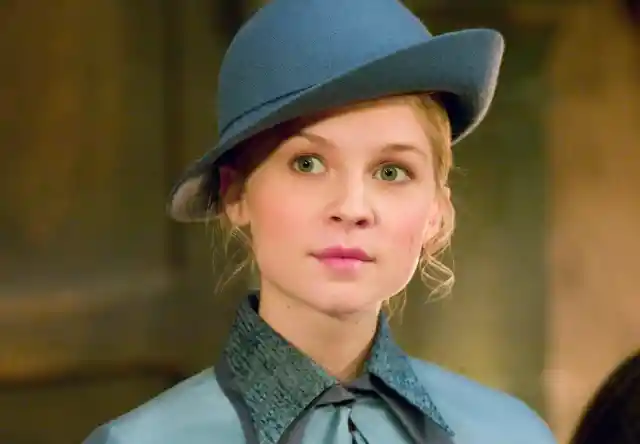
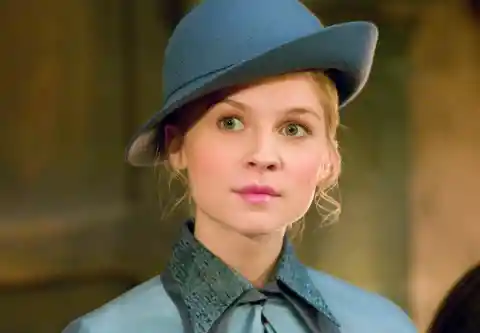
Fleur Delacour's participation in the Triwizard Tournament was a significant challenge, especially during the second task. Tasked with remaining underwater for an hour, Fleur faced unexpected difficulties. She was attacked, which hindered her ability to complete the task. This setback not only jeopardized her performance in the competition but also put her sister Gabrielle in danger. Fleur's struggle in this task highlighted the unpredictable and perilous nature of the tournament.
Harry Potter's intervention during this task was both heroic and risky. He rescued Gabrielle as well as his friend, Ron, demonstrating his bravery and concern for others. However, this act of heroism also placed them in a precarious situation, as it complicated their return to safety. Harry's actions, while well-intentioned, underscored the fine line between bravery and recklessness in the face of danger.
Dean Thomas
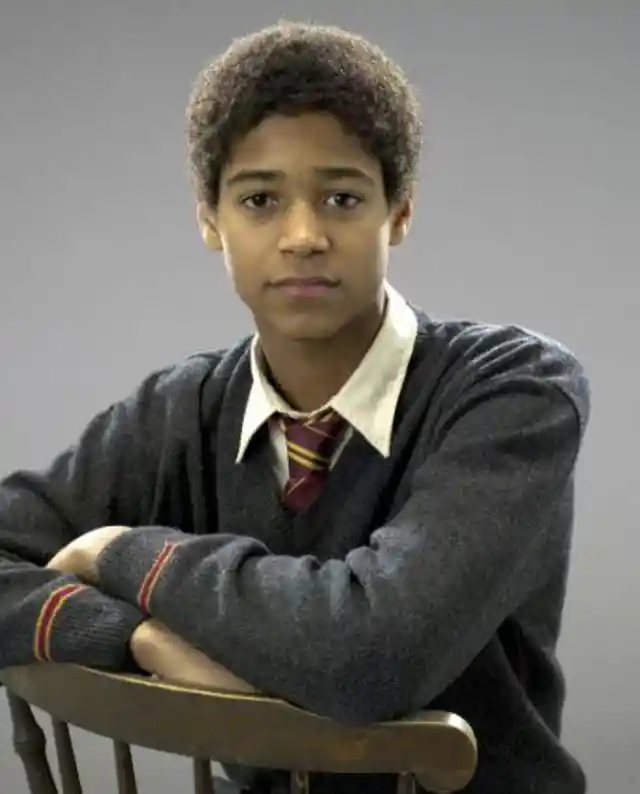

Dean Thomas's life story is a poignant example of the complexities and dangers of the wizarding world. Growing up, Dean believed he was Muggle-born, unaware of his true heritage. His father, a wizard, had kept his magical identity a secret even from his own family. This decision, made out of a desire to protect them, reflects the perilous times during the Wizarding Wars. The fear and uncertainty that wizards faced were so intense that some chose to hide their true selves, even from their loved ones.
The revelation about his father's hidden wizarding identity had a profound impact on Dean. It sheds light on the sacrifices made by families during the Wizarding Wars. Dean's story is a testament to the lengths individuals went to to keep their families safe from the dangers of the magical world. His father's choice to conceal his magic was a difficult but necessary measure to shield his family from the threats and prejudices rampant in those turbulent times.
Lily Potter
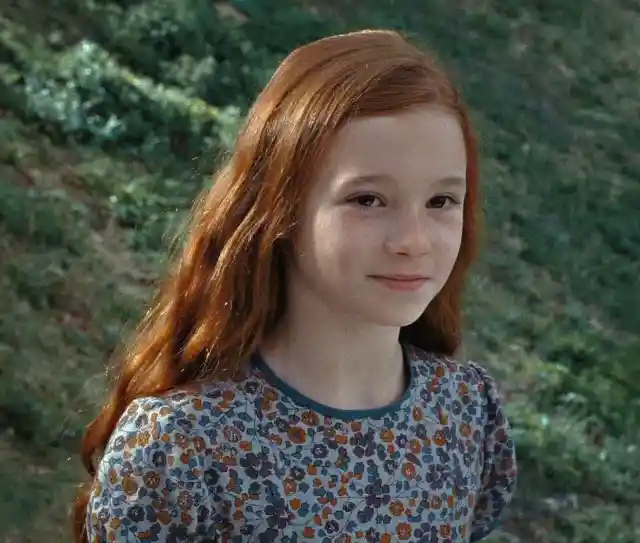
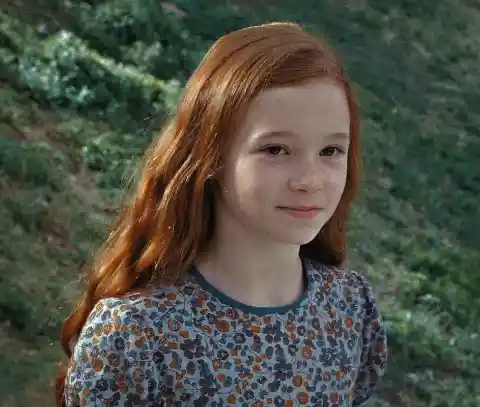
Lily Potter's final act was the ultimate demonstration of a mother's love. When faced with Voldemort, she was given a chance to save herself, a chance that came from Snape's plea. However, Lily chose to protect her son, Harry, at the cost of her own life. Her decision was not just an act of bravery; it was a profound sacrifice that spoke volumes about her love and selflessness. This moment was a powerful testament to the strength and depth of a mother's love.
The consequences of Lily's sacrifice were far-reaching and pivotal in the Harry Potter saga. Her death created a protective charm over Harry, a charm born out of pure love. When Voldemort's Killing Curse was cast, it couldn't harm Harry and instead rebounded, leaving him with only a lightning-bolt scar. This event not only saved Harry's life but also marked the beginning of Voldemort's downfall. Lily's love provided a shield that no dark magic could penetrate, highlighting the theme that love is the most powerful magic of all.
Barty Crouch Jr.
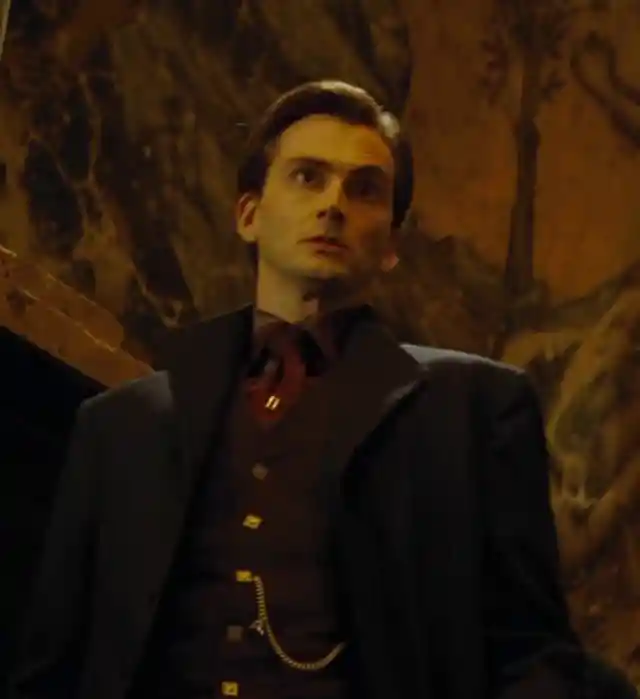
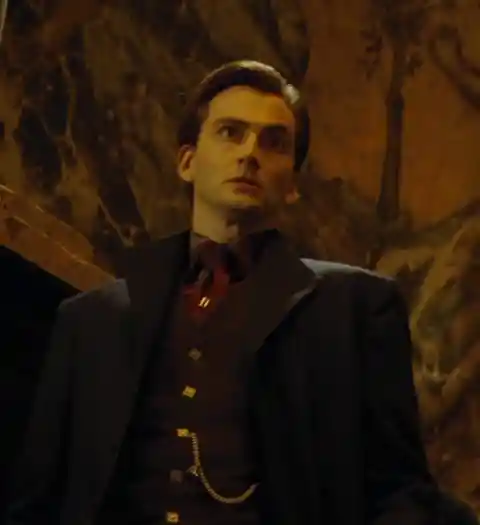
Barty Crouch Jr.'s allegiance to Voldemort was unwavering, even after the Dark Lord's initial defeat. He joined the Death Eaters, demonstrating his commitment to their cause. His involvement in the torture of the Longbottoms using the Cruciatus Curse was a chilling display of his loyalty and cruelty. This act not only showed his dedication to Voldemort's ideals but also his willingness to inflict pain and suffering in the name of those ideals.
Crouch Jr.'s most cunning act was during the Triwizard Tournament. He masterfully disguised himself as Alastor Moody, a respected Auror, to manipulate the events of the tournament. His goal was to bring Harry Potter to Voldemort, a plan that nearly succeeded. This deception was a testament to his intelligence and resourcefulness, making him one of the most dangerous followers of Voldemort. His actions played a critical role in the Dark Lord's plan to regain power and strength.
Barty Crouch Sr.
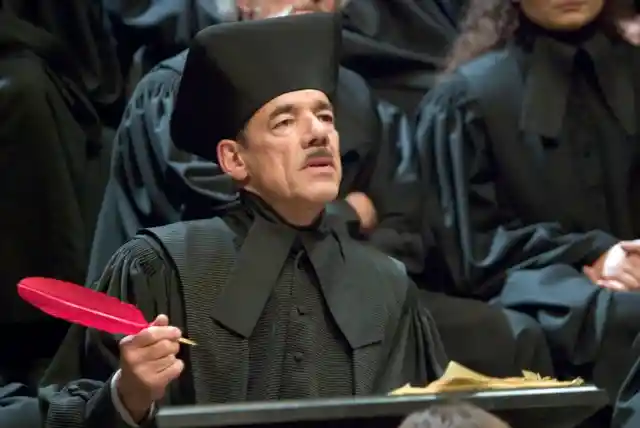
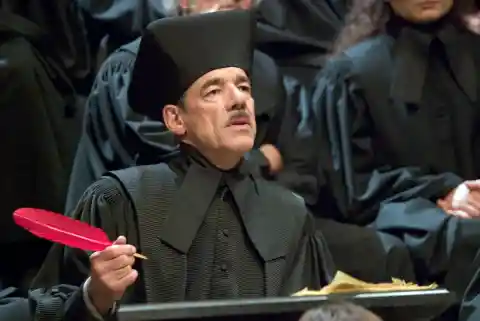
Barty Crouch Sr.'s career in the Ministry of Magic was marked by his hardline stance against dark magic and its practitioners. His approach was often harsh, drawing comparisons to the very Death Eaters he opposed. Despite his public denouncement of the Dark Side, his intense focus on his career blinded him to the changes happening in his own home. This oversight revealed a tragic flaw in his character, showing how ambition can sometimes overshadow the most important aspects of one's life.
The relationship between Barty Crouch Sr. and his son was strained and complex. His son, Barty Crouch Jr., grew to resent him deeply. This resentment stemmed from a feeling of neglect and a lack of understanding from his father. The culmination of this strained relationship was tragic, leading to Barty Jr.'s betrayal and the eventual murder of his father. This turn of events highlighted the devastating consequences of a broken family relationship and the dangers of letting ambition cloud one's judgment.
Minerva McGonagall
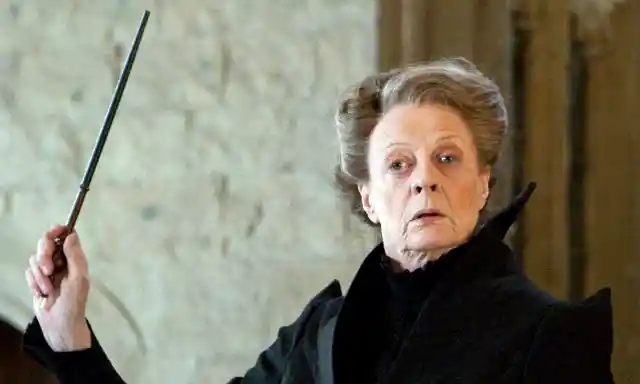
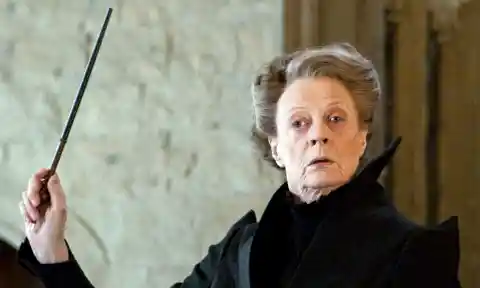
Minerva McGonagall's upbringing was unique, shaped by the secret her mother kept from her father. Her mother, a witch, chose to suppress her magical abilities to maintain peace in their marriage. This sacrifice highlighted the complexities faced by witches and wizards in relationships with Muggles. Minerva's early life was marked by this secret, creating a family dynamic that was loving yet built on a hidden truth.
The revelation of Minerva's magical abilities eventually came to light, altering the family's dynamics. Despite the initial shock and the strain it put on her parents' trust, Minerva's father, a Muggle, showed unwavering love and support for her. This acceptance was a testament to the strength of their family bond. Minerva's story illustrates the challenges and triumphs of a family navigating the coexistence of the magical and non-magical worlds.
Petunia Dursley
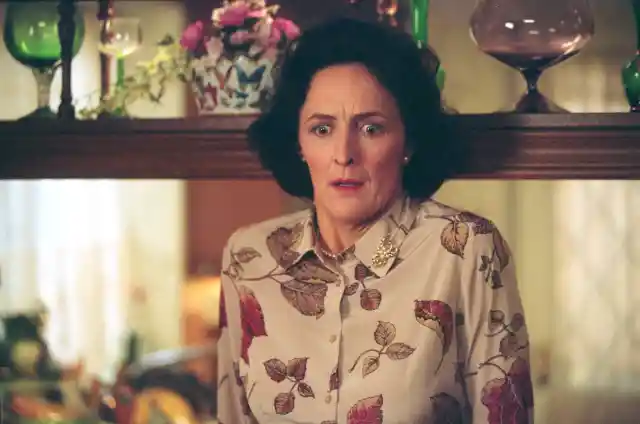
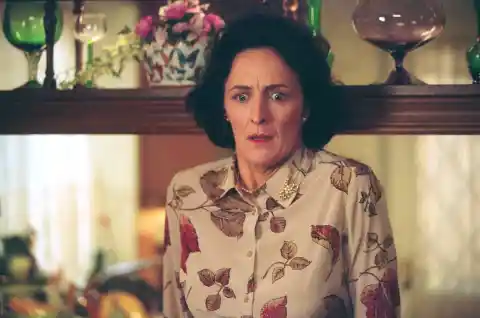
Petunia Dursley's relationship with her sister Lily was complicated and strained, rooted in envy and a sense of exclusion. From a young age, Petunia witnessed Lily's magical abilities, which she could not share or understand. This difference created a deep-seated jealousy that lasted throughout their lives. Petunia's inability to accept Lily's unique talents led to a lifelong resentment, affecting not just their relationship but also her perspective on the wizarding world.
When Harry Potter, Lily's son, came into Petunia's care, her feelings of bitterness were further amplified. Harry's presence in her home was a constant reminder of the magical world that she felt rejected by. This led to her treating Harry poorly, as she projected her unresolved feelings about Lily and the wizarding world onto him. Petunia's treatment of Harry was more than just unkindness; it was a manifestation of her deep-seated issues with her past and her sister's legacy.
Cuthbert Binns
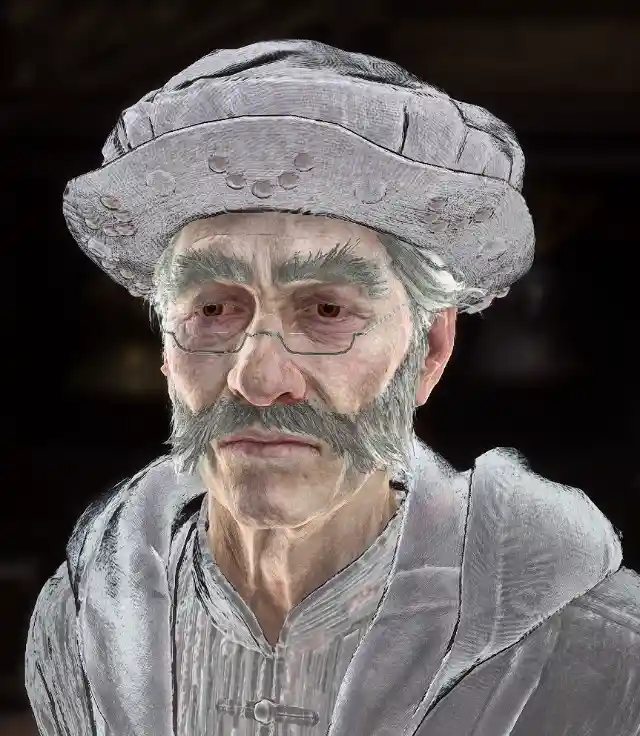
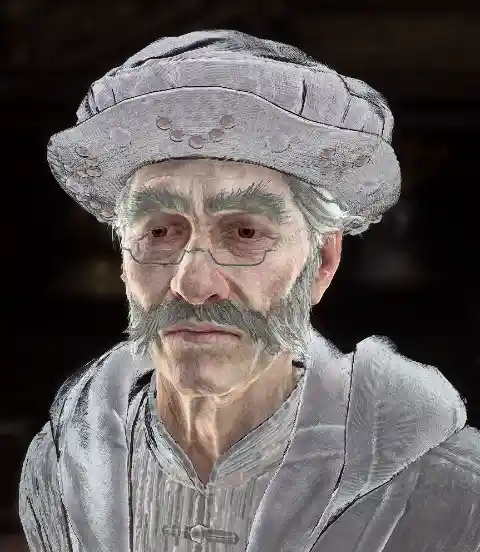
Professor Cuthbert Binns' story is as unique as it is intriguing. He was a long-standing History of Magic professor at Hogwarts, known for his monotonous lectures that often put students to sleep. Despite this, he was a respected figure at the school. His dedication to teaching was so profound that not even death could deter him from his passion. Binns continued to teach after his death, becoming the only ghost professor at Hogwarts, a fact that added a touch of intrigue to his otherwise dull classes.
The manner of Binns' passing was as peaceful as it was unusual. He died in his sleep in the staff room, and his ghost got up to teach the next day, seemingly unaware of his transition. This seamless shift from life to the afterlife in pursuing his vocation was a testament to his unwavering commitment to education. Binns' ghostly presence in the classroom constantly reminded students of the rich history and magical mysteries that Hogwarts held.
James Potter
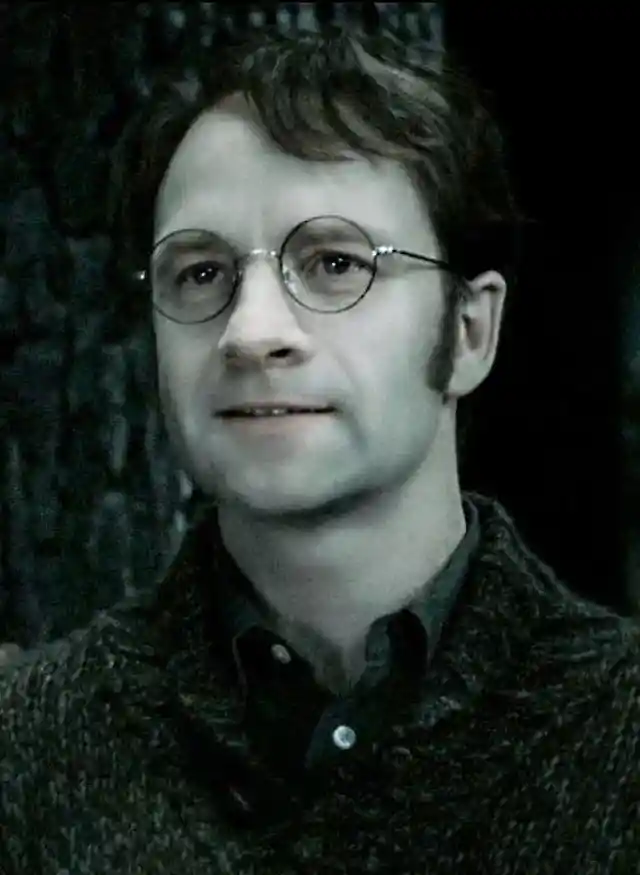
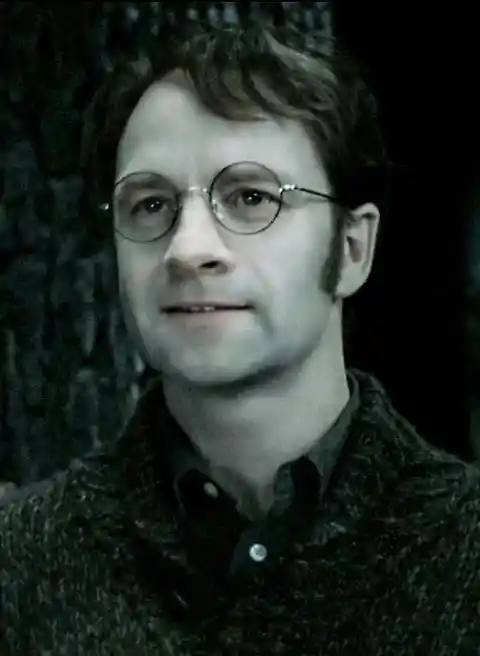
James Potter, during his time at Hogwarts, was known for his mischievous and sometimes unkind behavior, especially towards Severus Snape. As part of the group known as the Marauders, which included Peter Pettigrew and Sirius Black, James often engaged in pranks and teasing. Their target was frequently Snape, who was seen as different due to his interests and demeanor. This behavior was a significant part of James's youth, reflecting a less admirable side of his character.
However, James's attitude began to change when he developed feelings for Lily Evans, Snape's close friend. Lily disapproved of James's bullying ways, which prompted him to reconsider his actions. This shift in behavior was not just about winning Lily's affection; it was a sign of James's maturing. His transformation from a bully to a more compassionate individual was a significant part of his journey, showing that people can change and grow over time.
Ginny Weasley
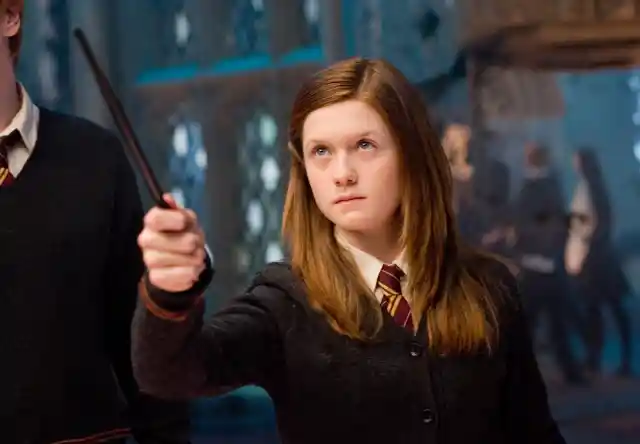

Ginny Weasley's unique position as the seventh child in her family carried a special significance in the wizarding world. This tradition, suggesting that the seventh child holds exceptional gifts, was reflected in Ginny's talents and abilities. Despite often being overshadowed by her brothers and the more famous students at Hogwarts, Ginny demonstrated remarkable magical skills. Her inclusion in Professor Slughorn's exclusive club was a testament to her abilities, as this club was reserved for the most talented and promising students.
Ginny's role at Hogwarts and within the Harry Potter series was more than just being a member of a large family. She showed strength, bravery, and a formidable talent for magic, which made her stand out. Her involvement in important events, including the Battle of Hogwarts, highlighted her courage and skill. Ginny's character development throughout the series showcased her as a capable and independent witch, earning her a place among the notable characters in the Harry Potter universe.
Rita Skeeter
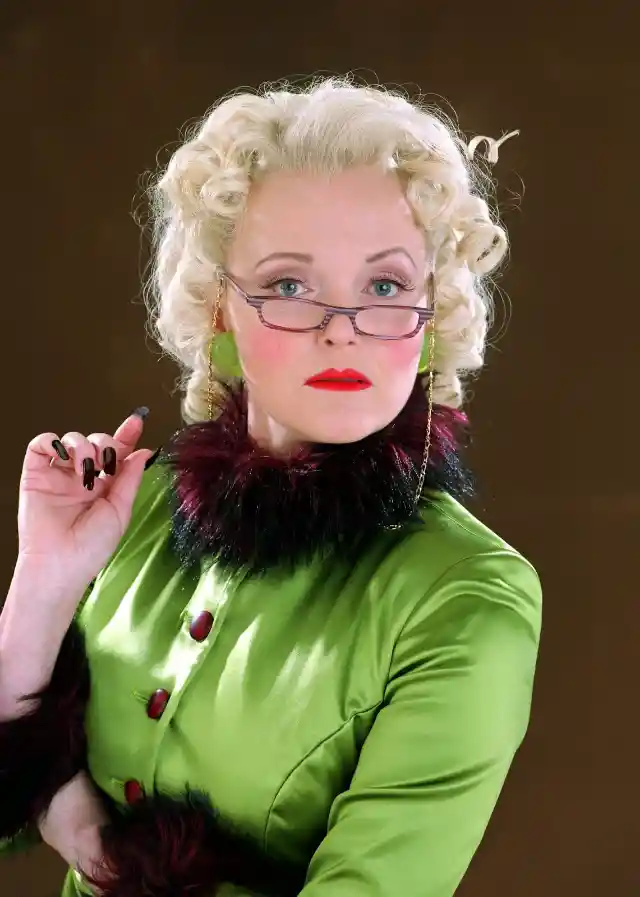

Rita Skeeter's reputation as a journalist for The Daily Prophet was notorious, primarily due to her penchant for sensational and often misleading stories. Her articles frequently contained twisted facts and exaggerated details, which she gathered through dubious means. Skeeter's approach to journalism was less about reporting the truth and more about creating scandalous and attention-grabbing headlines. Her disregard for accuracy and ethics in her reporting made her a controversial figure in the wizarding community.
What made Rita Skeeter particularly unsettling was her secret ability as an unregistered Animagus. She could transform into a beetle at will, a skill she exploited to eavesdrop on private conversations and gather insider information without being detected. This invasion of privacy was a gross misuse of her magical abilities and a clear violation of journalistic integrity. Her beetle form allowed her to access information in a way that was not only unethical but also illegal, adding a layer of deceit and manipulation to her already questionable reporting methods.
Amos Diggory
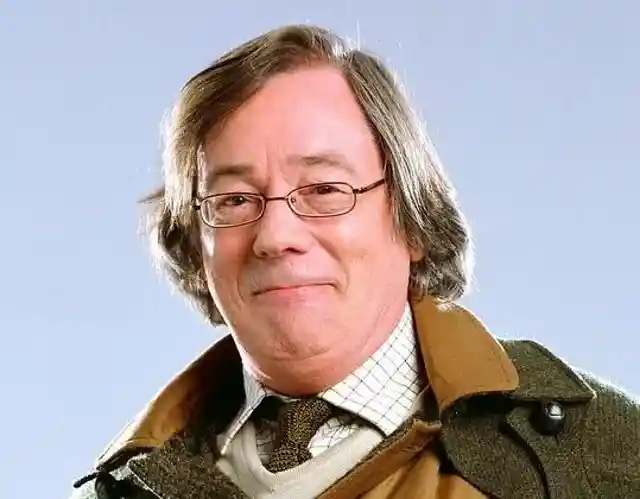

Amos Diggory's grief over the loss of his son, Cedric, in the Triwizard Tournament consumed him. His inability to move past the tragedy led him to fixate on the idea of altering the past. This obsession grew over the years, driving him to seek out a drastic solution. He implored Albus Potter and Scorpius Malfoy to use a newly discovered time-turner to go back and prevent Cedric's death. Amos's desperation to change history was a poignant reminder of the enduring impact of loss and the lengths to which one might go to undo the past.
Albus and Scorpius, influenced by Amos's plea, embarked on a risky journey through time. Their actions, though well-intentioned, resulted in unforeseen and alarming changes to reality. The new world they created by saving Cedric was far from ideal, leading to complications and dangers they hadn't anticipated. This experience highlighted the delicate nature of time and the potential consequences of tampering with it. Ultimately, they realized the necessity of restoring the original timeline, accepting that some events, however tragic, are immutable.
Charity Burbage
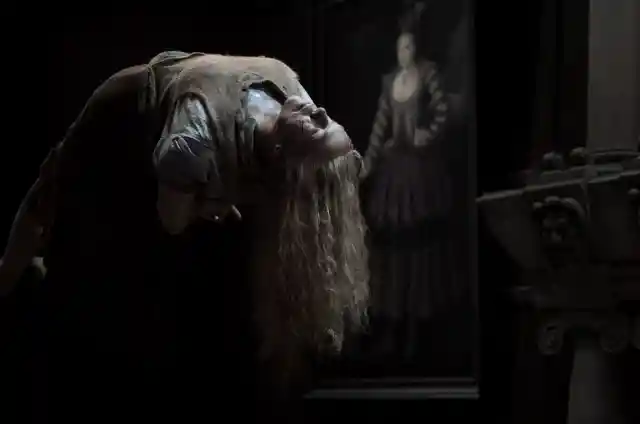
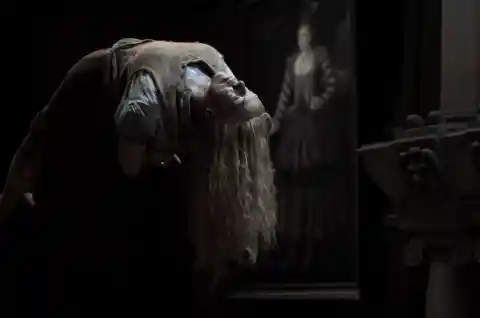
Charity Burbage's role as the Muggle Studies teacher at Hogwarts was one that she performed with passion and dedication. She believed in educating young witches and wizards about the importance of Muggles and promoting understanding between the magical and non-magical communities. Her teachings, which emphasized respect and equality, were in stark contrast to the beliefs of the Death Eaters. To them, her pro-Muggle stance was seen as a betrayal of wizarding values, marking her as a target for their hatred and bigotry.
The fate that befell Charity Burbage was both tragic and horrifying, reflecting the brutality of Voldemort and his followers. In a chilling display of cruelty, Voldemort used the Avada Kedavra curse to kill her, and then callously fed her body to his snake, Nagini. This act was not just a murder; it was a statement of terror and a warning to anyone who dared to oppose Voldemort's ideology. Burbage's death was a stark reminder of the extreme dangers faced by those who stood up for what they believed in during these dark times.
Vincent Crabbe
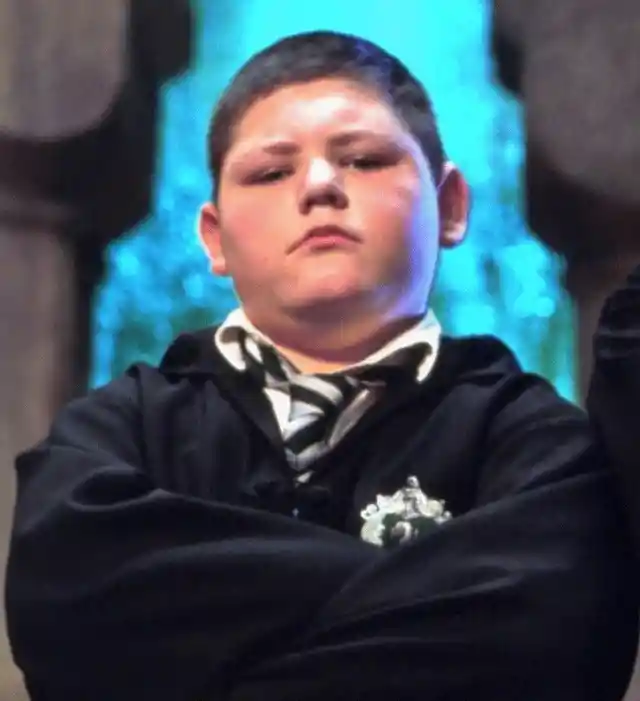
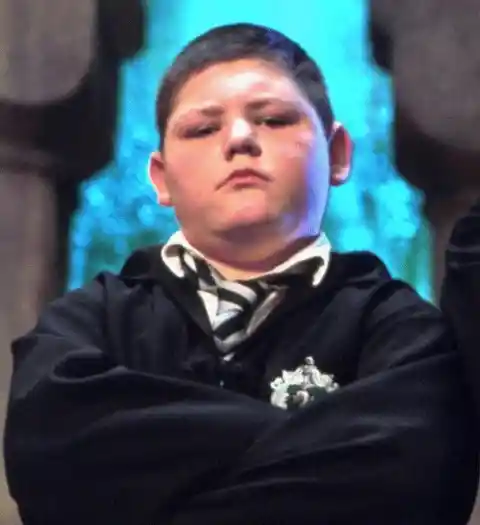
Vincent Crabbe, often seen as just a follower of Draco Malfoy, showed a darker and more dangerous side in his final year at Hogwarts. His skills in dark magic had grown significantly, revealing a more sinister and aggressive nature. Crabbe's transformation from a mere sidekick to a formidable dark wizard was a surprising development. His newfound competence in dark arts, especially his willingness to use lethal spells, marked a significant shift in his character.
During the climactic Battle of Hogwarts, Crabbe's actions took a fatal turn. In a moment of recklessness, he conjured Fiendfyre, a powerful and uncontrollable magical fire. His attempt to use this dangerous spell against Harry, Ron, and Hermione was a drastic move, driven by a desire to prove himself. Unfortunately, his lack of control over the spell led to tragic consequences. The Fiendfyre ultimately consumed him, ending his life and illustrating the perilous nature of dark magic when wielded without caution or skill.
Rufus Scrimgeour
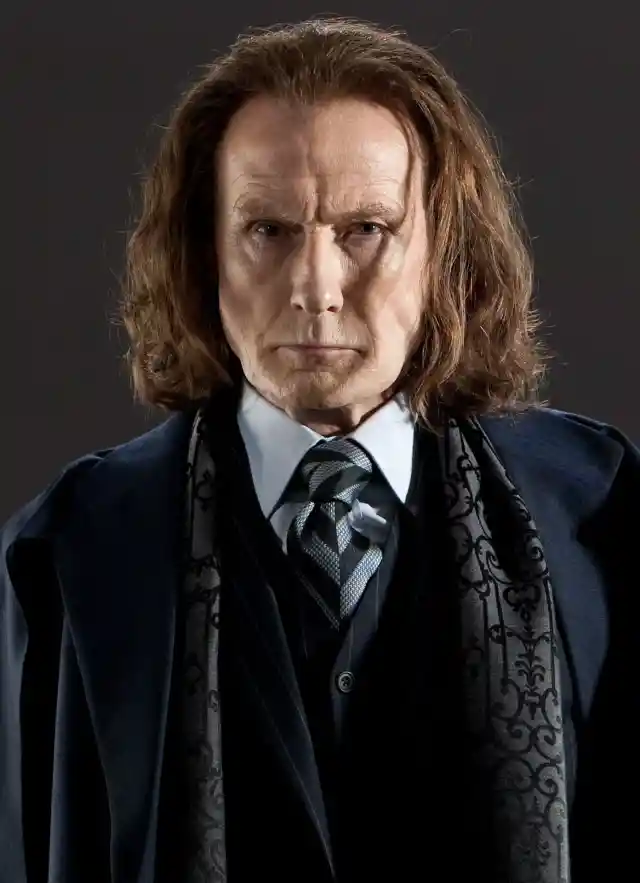
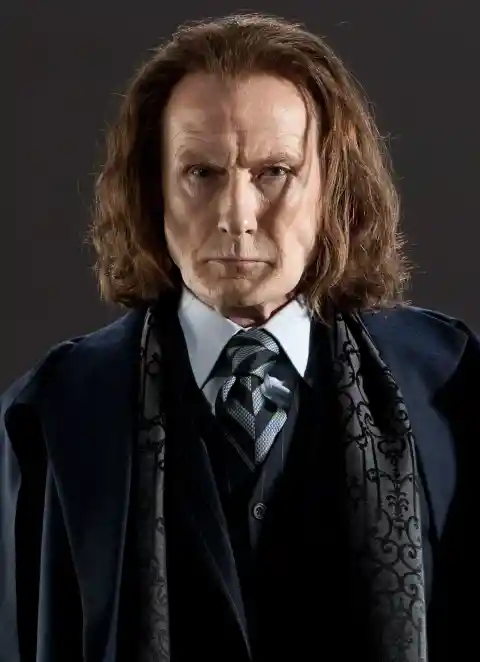
Rufus Scrimgeour's tenure as Minister for Magic was marked by his firm approach against dark forces, a stark contrast to his predecessor, Cornelius Fudge. Scrimgeour's efforts to combat the Dark Arts were commendable, yet his methods sometimes created a false sense of security. This facade inadvertently allowed dark wizards to infiltrate the Ministry, undermining his efforts. His leadership style, while assertive, failed to fully grasp the cunning and resourcefulness of Voldemort and his followers.
The tragic end of Scrimgeour's leadership came at the hands of Voldemort himself. Captured and tortured for information about Harry Potter, Scrimgeour showed remarkable courage and integrity by refusing to betray Harry. His resistance, however, led to his demise. Voldemort, frustrated by Scrimgeour's steadfastness, ultimately killed him. Scrimgeour's death was not just the loss of a leader; it was a symbol of Voldemort's growing power and the increasing peril faced by the wizarding world.
Viktor Krum


Viktor Krum, the Durmstrang student known for his formidable appearance, was often misunderstood. Despite his tough exterior, Viktor was not aligned with dark magic. His participation in the Triwizard Tournament revealed a different side of him, showcasing his skills and sportsmanship. However, during the tournament's third task, he became an unwitting pawn in a darker scheme. Controlled by the Imperius Curse, he was forced to act against his will, demonstrating how even the strongest can be manipulated by dark forces.
The incident in the maze, where Barty Crouch Jr. used Viktor to attack Cedric Diggory, was a shocking moment. Viktor, under the influence of the Imperius Curse, performed the Cruciatus Curse on Cedric, an act completely out of character for him. This experience not only affected Cedric but also left Viktor as a victim of the dark plot. It highlighted the insidious nature of dark magic and how it can corrupt and control, turning innocent individuals into tools for malevolent purposes.
Igor Karkaroff
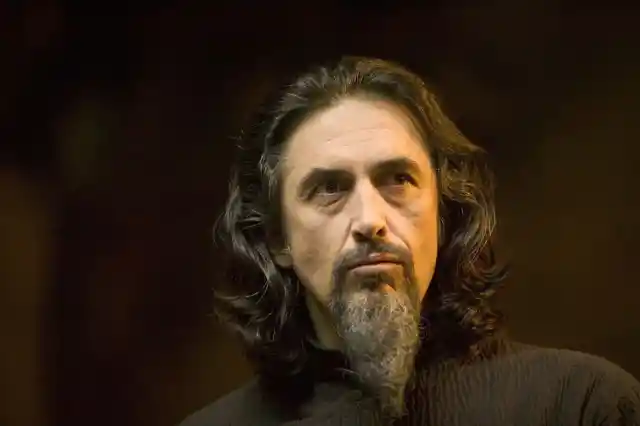

This Dark Wizard's actions during the First Wizarding War were marked by cruelty and betrayal. Known for his ruthless torture of Muggles and those who opposed Voldemort, he was a feared figure among both the magical and non-magical communities. His allegiance to the Dark Lord was unwavering, and he committed heinous acts in Voldemort's name. His reputation was built on fear and treachery, making him a symbol of the terror that Voldemort's followers could inflict.
However, when Voldemort was defeated and the tide of the war changed, this Dark Wizard's true nature as a traitor emerged. Captured and facing punishment, he chose self-preservation over loyalty. In a desperate bid to save himself, he revealed the names of his fellow Death Eaters to the authorities. This act of betrayal led to the imprisonment of many Death Eaters in Azkaban, sparing him but marking him as a coward and a turncoat. His actions demonstrated the fragility of loyalty among Voldemort's followers and the lengths to which they would go to avoid retribution for their crimes.
Rubeus Hagrid


Rubeus Hagrid's life at Hogwarts took a dramatic turn during his third year due to Tom Riddle's malicious actions. Riddle, who would later become Lord Voldemort, opened the Chamber of Secrets and unleashed terror upon the school. Hagrid, known for his fondness for unusual creatures, became an easy target for blame. Riddle cunningly manipulated the situation, accusing Hagrid of being responsible for the attacks. This accusation had severe consequences for Hagrid, altering the course of his life significantly.
As a result of Riddle's deceit, Hagrid faced unjust punishment. He was expelled from Hogwarts, a place he dearly loved, and his dream of becoming a fully-fledged wizard was shattered. Moreover, he was forbidden from practicing magic, a harsh and life-changing penalty. This injustice deeply affected Hagrid, yet he remained at Hogwarts as the gamekeeper, a testament to his resilience and enduring love for the magical community. His story is a poignant example of how one individual's malevolence can unfairly impact the life of an innocent person.
Remus Lupin
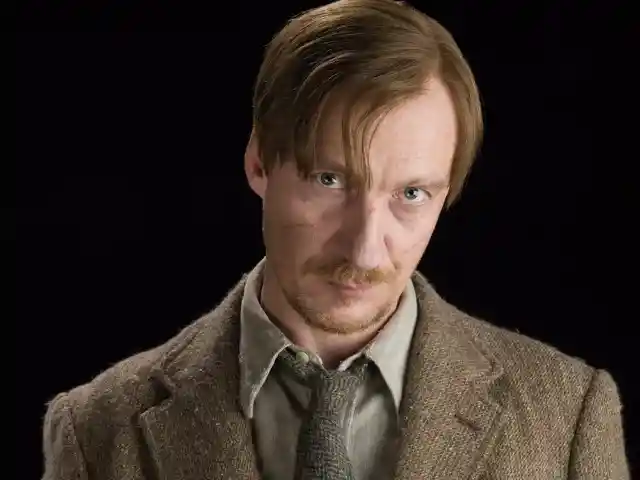
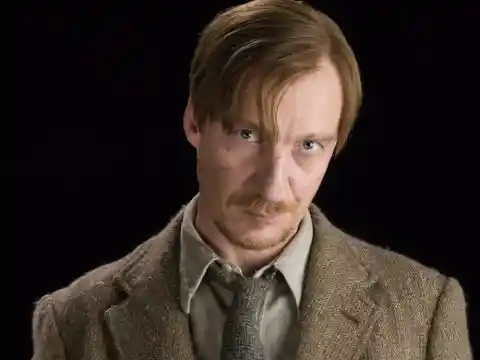
The life of Professor Remus Lupin, affectionately known as Moony, was marked by a struggle that few could comprehend. His affliction with lycanthropy, the condition of being a werewolf, was a source of deep personal pain and societal stigma. This condition wasn't inherent to him; it was the result of a cruel act of revenge. As a young child, at the tender age of five, Remus was bitten by Fenrir Greyback, a notorious and savage werewolf. This life-altering event was a direct consequence of his father's outspoken condemnation of Greyback.
Lyall Lupin, Remus' father, had publicly expressed his belief that Greyback, known for his brutality, deserved death. This statement incited Greyback's wrath, leading him to target Lyall's innocent son. The attack on Remus was Greyback's way of exacting revenge, a malicious act that forever changed the Lupin family's lives. Remus' transformation into a werewolf was not just a physical curse but also a burden that affected his social interactions, career opportunities, and overall well-being. His story is a poignant reminder of the lasting impact of vengeance and the challenges faced by those who are unfairly ostracized in society.
Fenrir Greyback
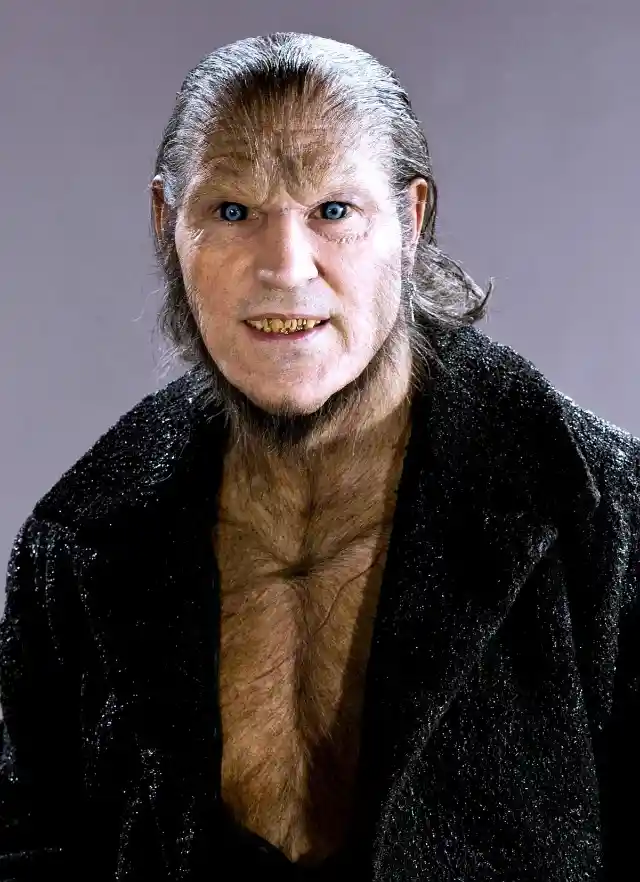
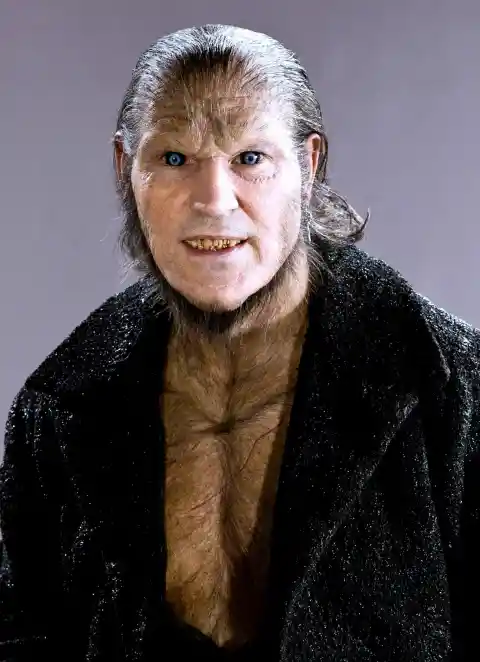
Fenrir Greyback's reputation in the wizarding world was one of terror and brutality. As a werewolf, he was feared not just for his ferocity but also for his deliberate targeting of children. Greyback's sinister goal was to spread lycanthropy widely, particularly among the young. He believed that by infecting children, he could raise an army of werewolves. This army, he hoped, would be powerful enough to challenge and eventually dominate the wizarding community. His actions were driven by a desire for power and a deep-seated resentment towards those who were not afflicted with lycanthropy.
The threat posed by Greyback came to a head during the Battle of Hogwarts, a pivotal moment in the Second Wizarding War. It was here that Ron Weasley and Neville Longbottom confronted the feared werewolf. In a courageous stand against Greyback, they managed to defeat him, thereby preventing his dark vision from becoming a reality. Their success in this battle was not just a personal triumph but also a significant contribution to the safety of the wizarding world. The defeat of Greyback symbolized the triumph of courage and unity over fear and oppression.
Peter Pettigrew
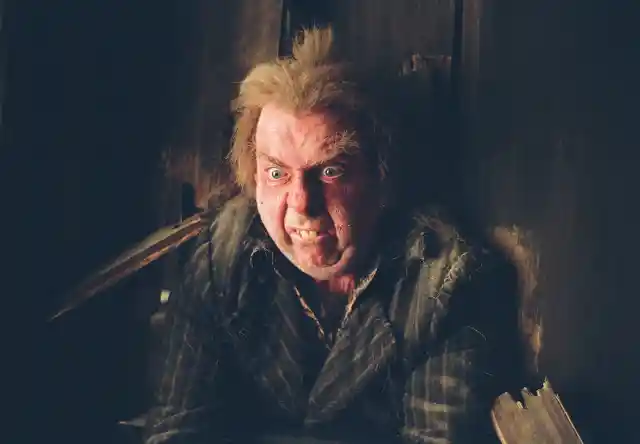
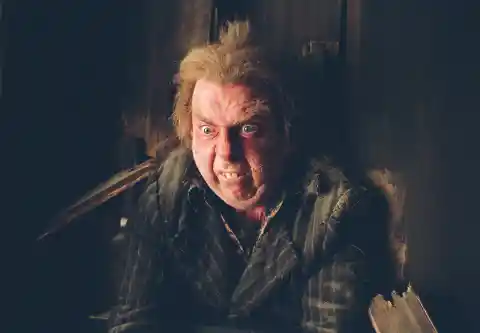
Peter Pettigrew, known as Wormtail, was a complex character in the Harry Potter series. Initially, a close friend of James Potter, Sirius Black, and Remus Lupin, Pettigrew's true nature was one of betrayal and cowardice. His most infamous act was revealing the location of the Potters to Voldemort, leading to their tragic demise. This act of treachery was a stark contrast to the loyalty and bravery shown by his friends. Pettigrew's decision to betray those closest to him was driven by fear and a desire for self-preservation, showcasing the darker aspects of his character.
Pettigrew's deceit didn't end with the betrayal of the Potters. In a cunning move to escape justice, he faked his death and framed Sirius Black for the betrayal and the murder of twelve Muggles. This act of framing Sirius not only cleared Pettigrew's name but also condemned his once dear friend to years of unjust imprisonment. Pettigrew's actions were a clear indication of his manipulative and self-serving nature. His willingness to sacrifice others for his benefit made him an ideal servant for Voldemort, embodying the qualities of cowardice and treachery.
Helena Ravenclaw


Helena Ravenclaw's story is a tragic tale of betrayal and loss. She stole her mother Rowena Ravenclaw's prized diadem, seeking to surpass her mother's wisdom and renown. Fleeing to Albania with the diadem, Helena hoped to carve out her legacy. However, this act of theft deeply hurt her mother, leading to a rift between them. Helena's actions reflected a desire for recognition and independence, but they also highlighted the complexities of mother-daughter relationships and the consequences of youthful rebellion.
The end of Helena's life was marked by tragedy. Sent by her ailing mother to bring Helena back, the Bloody Baron, who loved Helena unrequitedly, found her in Albania. Upon her refusal to return with him, the Baron, in a moment of rage and despair, killed her. This violent act was a result of his uncontrolled emotions and unrequited love. Helena's death led to her becoming the Ghost of Ravenclaw House at Hogwarts, where she continued to exist in a spectral form, forever bound to the place of her ancestry. Her story is a haunting reminder of the destructive power of love and anger.
The Bloody Baron
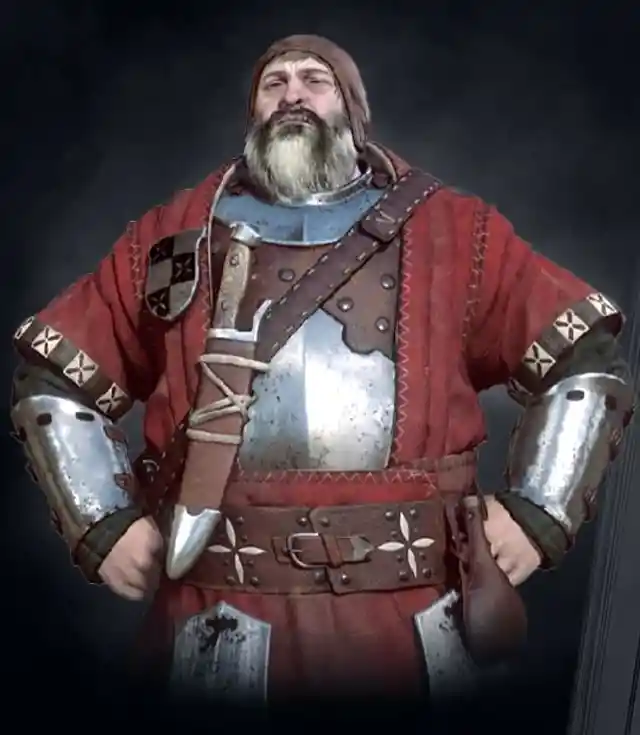
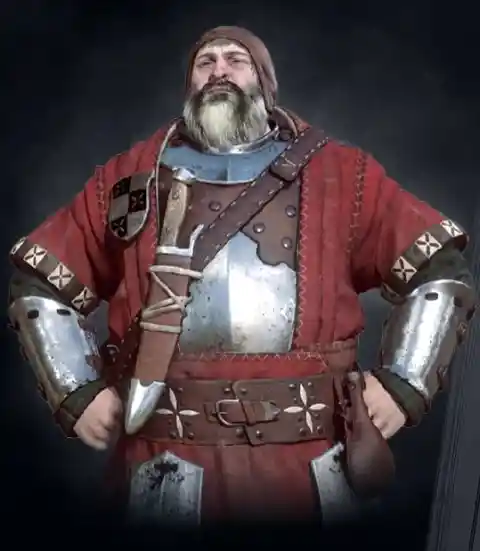
The Bloody Baron, as he came to be known, carries a haunting history that adds to the mystique of Slytherin House. Born into nobility in the 10th century, he was among the first students at Hogwarts and was sorted into Slytherin. His story is steeped in tragedy, marked by the fateful incident with Helena Ravenclaw. After taking her life in a moment of rage, the Baron was overcome with remorse. This remorse followed him beyond death, as he returned to Hogwarts as a ghost, eternally bearing the visual reminder of his deed.
The Baron's ghostly presence in Hogwarts is a chilling sight. He is often seen drifting through the corridors of the Slytherin House, his shirt stained with the blood of Helena Ravenclaw. This gruesome appearance serves as a constant reminder of his violent past and the sorrow that followed. His silent, brooding figure adds a somber and eerie atmosphere to the Slytherin common room and its surroundings. The Baron's story and his spectral existence at Hogwarts are a testament to the lasting impact of one's actions and the burdens that can be carried beyond life.
Alastor Moody
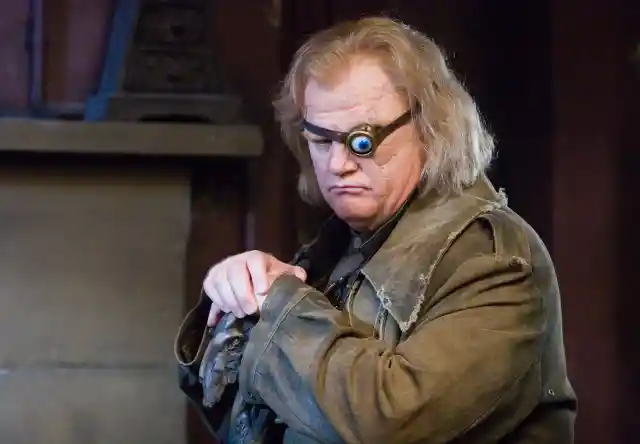

Alastor "Mad-Eye" Moody's dedication to his role as an Auror was unparalleled. His commitment to fighting dark forces was not just a job; it was a calling that he pursued with relentless determination. This pursuit, however, came at a great personal cost. Moody's battles against dark wizards left him with significant physical scars, including the loss of an eye, a leg, and part of his nose. These injuries were badges of honor in his fight against evil, symbolizing his bravery and sacrifice.
Moody's sacrifices were a testament to his belief in the greater good and the protection of the wizarding world. His fierce demeanor and distinctive appearance, marked by his magical eye and wooden leg, made him a formidable and respected figure. His willingness to endure pain and loss for the sake of his mission inspired many in the magical community. Moody's story is a powerful example of the sacrifices one might make in the face of danger and adversity, driven by a deep sense of duty and commitment.
Garrick Ollivander
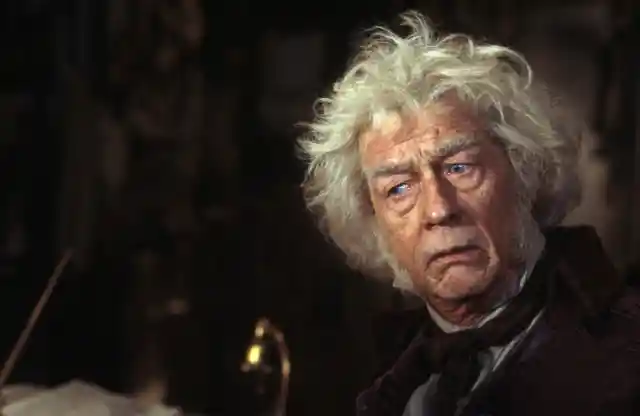
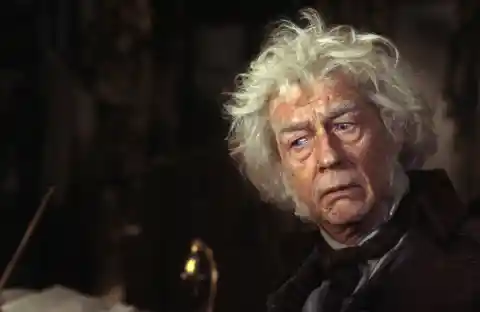
Garrick Ollivander's expertise as the world's most renowned wandmaker placed him in a perilous situation during the Second Wizarding War. Voldemort, seeking knowledge about wands to defeat Harry Potter, captured Ollivander and held him prisoner at Malfoy Manor. There, Ollivander endured months of torture, as Voldemort demanded information about the unique connection between Harry and his wand. Ollivander's deep understanding of wand lore made him a valuable but unfortunate target, as he was forced to reveal crucial details under duress.
Ollivander's revelation about the twin cores of Harry's and Voldemort's wands led Voldemort to seek an alternative wand to avoid the backfiring issue he had previously encountered. However, when this strategy failed to yield the desired result, Voldemort's frustration grew, and Ollivander faced further torture. This cycle of hope and despair underlined the dark and desperate measures Voldemort was willing to take. Ollivander's ordeal highlighted the dangers faced by those caught in the crossfire of the wizarding world's conflicts, especially those with specialized and sought-after knowledge.
Merope Riddle (née Gaunt)
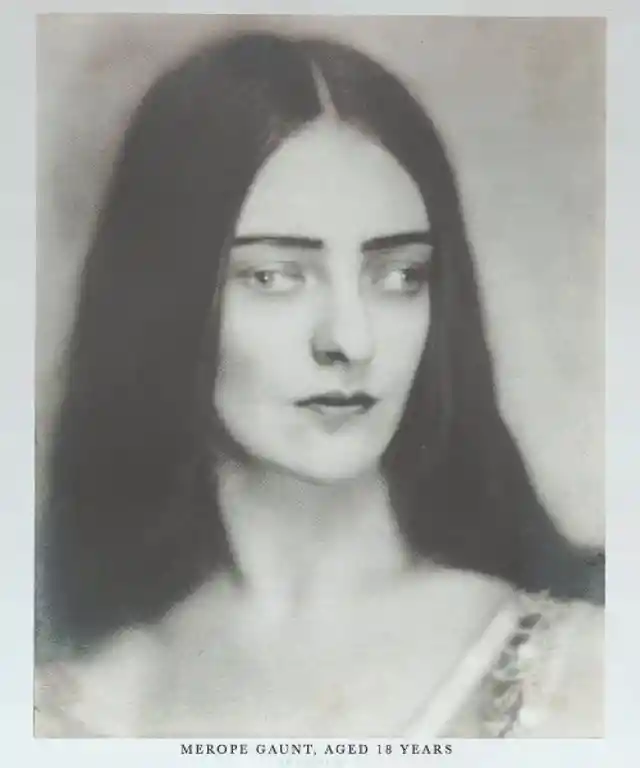

Merope Riddle's life was marked by suffering and a desperate yearning for love. Trapped in a life of poverty and abuse, she found an escape in her obsession with Tom Riddle Sr., a wealthy Muggle. Her unrequited love drove her to use magic to win his affection, a decision that reflected her deep loneliness and desire for a better life. This act of enchantment, though driven by love, was a manipulation that crossed ethical boundaries, showcasing the complexities of her character and her tragic circumstances.
The consequences of Merope's actions were profound, especially for her son, Tom Marvolo Riddle, who would later become Lord Voldemort. Her use of a love potion to create a family with Tom Sr. was a foundation built on falsehoods and coercion. This twisted version of a "love story" set a poor example for her son, lacking the genuine affection and moral guidance crucial for a child's upbringing. Merope's story is a sad example of how the absence of true love and the presence of manipulation can have a lasting and detrimental impact on future generations.
Morfin Gaunt


Morfin Gaunt, though a deeply unpleasant individual, paled in comparison to the malevolence of his nephew, Tom Riddle, later known as Voldemort. Morfin's cruel treatment of his sister Merope was one of the many dark aspects of his character. However, his life took a tragic turn when Tom Riddle sought revenge for his mother's suffering. Riddle's vengeance was cold and calculated, demonstrating his early mastery of dark magic and manipulation. He committed a heinous act, murdering his own paternal family, and then cunningly altered Morfin's memory to make him believe he was responsible.
Morfin's fate was sealed by this cruel deception. Believing himself to be the murderer, he was filled with a false sense of pride over the crime. This manipulation led to his wrongful imprisonment in Azkaban, where he spent the remainder of his life. The injustice Morfin faced was a stark example of Voldemort's ruthlessness and his disregard for human life, even within his own family. Morfin's story is a grim reminder of the devastating impact that manipulation and false memories can have, leading to undeserved punishment and a life wasted in despair.
Lord Voldemort
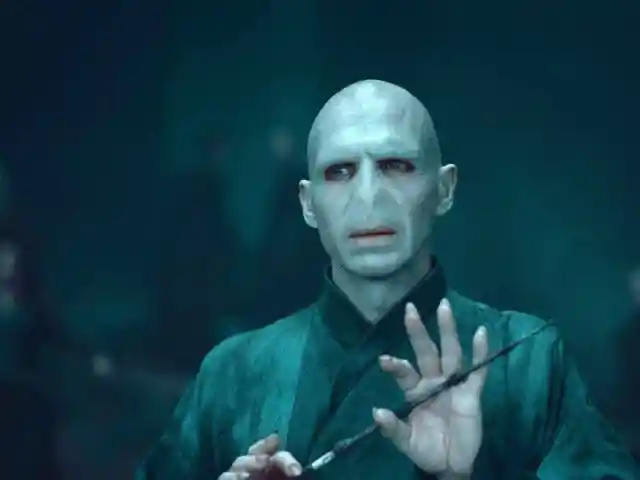
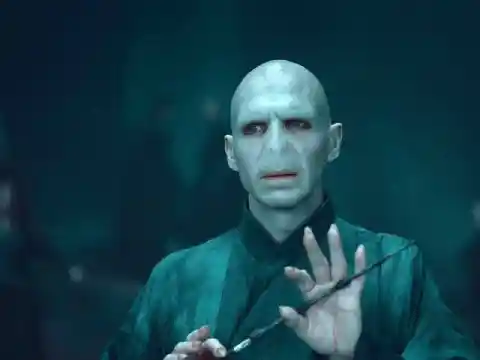
Voldemort lost his physical form and magical powers on the fateful night when he killed the Potters, but the Horcruxes he had created kept his spirit bound to the physical world. The only power he was left with was possession so he gained physical form by inhabiting animals, mostly snakes (maybe because he could speak their language?), but his possession significantly reduced the poor animals' lives.
Lucius Malfoy
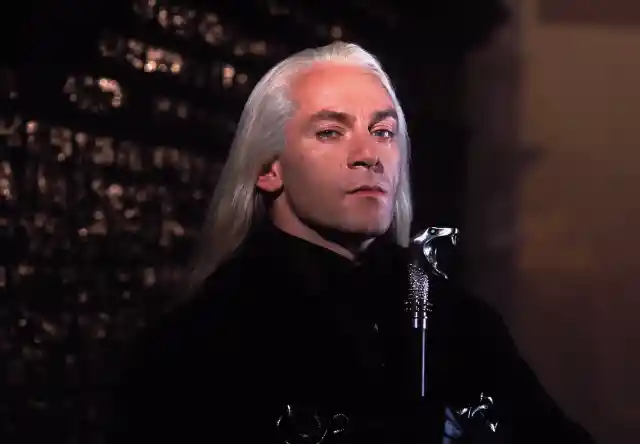
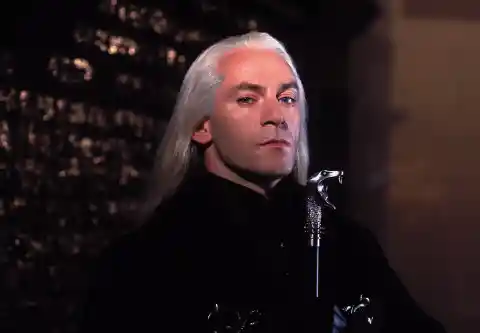
Lucius Malfoy's actions during and after the First Wizarding War paint a picture of a man driven by self-preservation and ambition. After Voldemort's initial defeat, Lucius cleverly evaded imprisonment in Azkaban by claiming he had been under the Imperius Curse, a defense that allowed him to maintain his status and influence in the wizarding community. This claim, however, was dubious at best, raising questions about his true loyalty and the extent of his involvement with the Death Eaters.
When Voldemort returned to power, Lucius's allegiance was once again put to the test. His decision to rejoin Voldemort's ranks cast doubt on his earlier defense of being under the Imperius Curse. This move suggested that his earlier claims were more about self-protection than truth. Lucius's actions during this period reflected the complex dynamics of power, fear, and loyalty within the Death Eater ranks. His willingness to align himself with Voldemort a second time revealed his true colors and the lengths he would go to secure his position and power.
Draco Malfoy
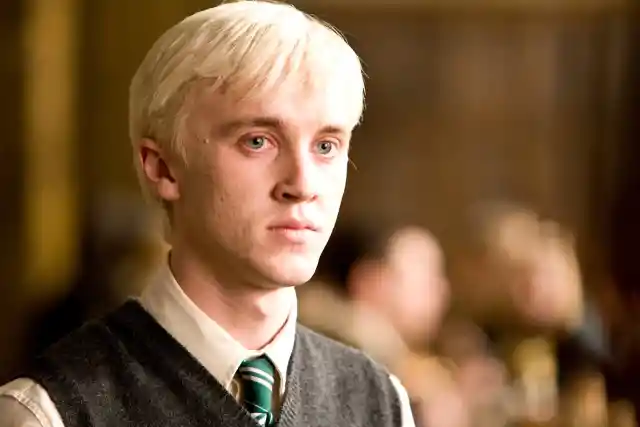
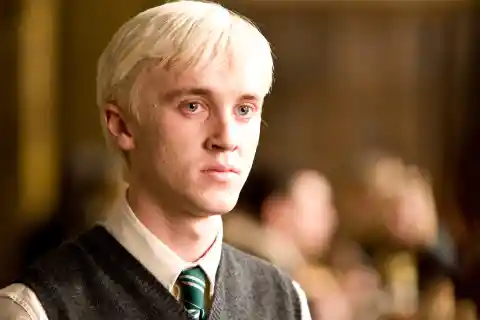
Draco Malfoy's wand composition reveals much about his complex character. The unicorn hair core suggests an underlying goodness, despite his often harsh exterior and questionable actions. This core symbolizes purity and healing, hinting at Draco's potential for redemption and the internal struggle between his upbringing and his conscience. It reflects the more humane aspects of his personality, often overshadowed by his allegiance to Slytherin's aggressive traits.
The hawthorn wood of Draco's wand further underscores his inner conflict. Hawthorn wands are known to choose wizards who are undergoing a significant emotional or moral challenge. This characteristic aligns with Draco's experience, especially during the task of killing Dumbledore. His inability to carry out Voldemort's order to murder the Hogwarts headmaster was a pivotal moment, revealing the depth of his internal battle. It showed that despite his bravado and loyalty to the Dark Lord, there was a part of Draco that resisted crossing the line into irreversible darkness.
Luna Lovegood


Luna Lovegood, known for her unique perspective and dreamy demeanor, carried a hidden sorrow that few of her peers at Hogwarts were aware of. At the tender age of nine, she experienced a life-altering tragedy when her mother, a talented witch who loved experimenting with spells, met with a fatal accident. This accident occurred during one of her magical experiments, and Luna, tragically, was a witness. This traumatic event deeply impacted Luna, shaping her into the person she became at Hogwarts.
This profound experience also granted Luna the ability to see Thestrals, mysterious and magical creatures invisible to most. Thestrals, with their skeletal, winged appearance, are only visible to those who have witnessed death. For Luna, the ability to see these creatures was a constant reminder of her loss, yet she accepted this aspect of her life with her characteristic serenity. Her connection with Thestrals symbolized her acceptance of life's darker aspects and her resilience in the face of personal tragedy.
Albus Dumbledore
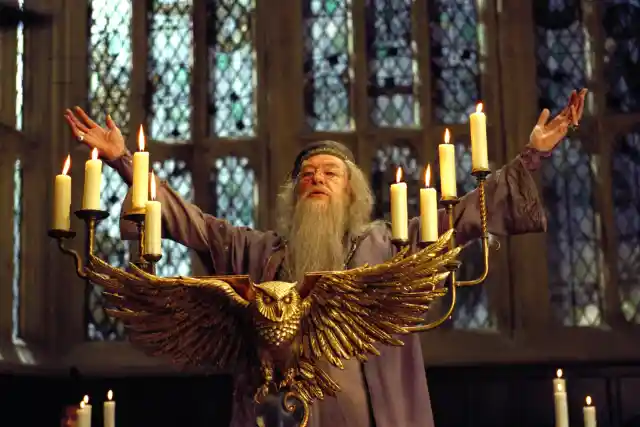
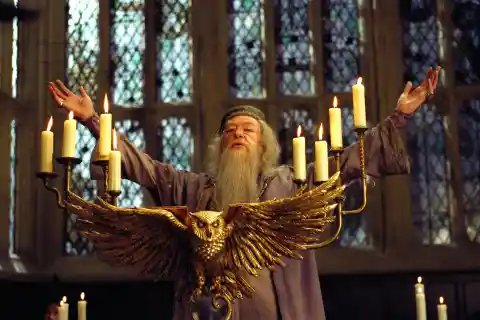
In "Harry Potter and the Prisoner of Azkaban," a subtle hint foreshadows the eventual fate of Albus Dumbledore. The prophecy, stating that the first to rise from a table of thirteen would be the first to die, seemed like a mere superstition. However, unbeknownst to many, the count at the dinner table included Peter Pettigrew, disguised as Scabbers the rat. This detail brought the total number of beings at the table to thirteen, setting the stage for the prophecy's grim prediction.
Tragically, it was Dumbledore who first stood up from this fateful gathering. At the time, this action appeared inconsequential, but in the grand scheme of the series, it was a cleverly planted clue by J.K. Rowling about Dumbledore's eventual demise. This moment, easily overlooked amidst the unfolding drama of the story, later gained significance as readers realized its importance in the larger narrative. Dumbledore's rise from the table was not just a physical action but a symbolic precursor to the end of his journey in the wizarding world.
Aberforth Dumbledore
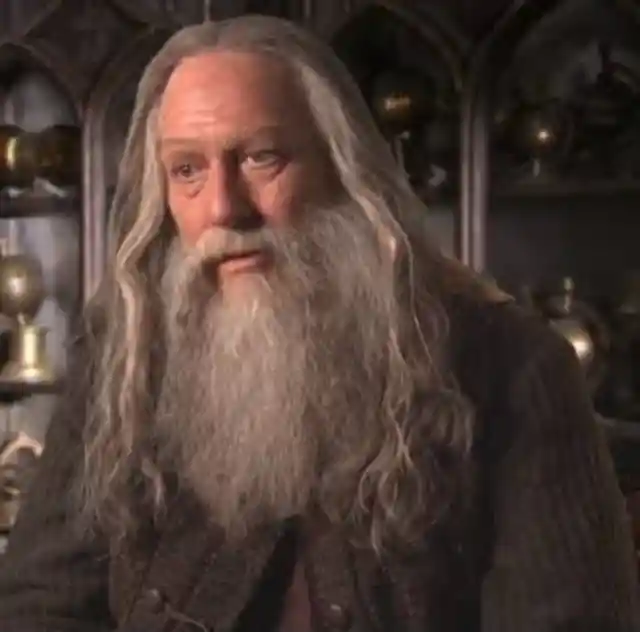
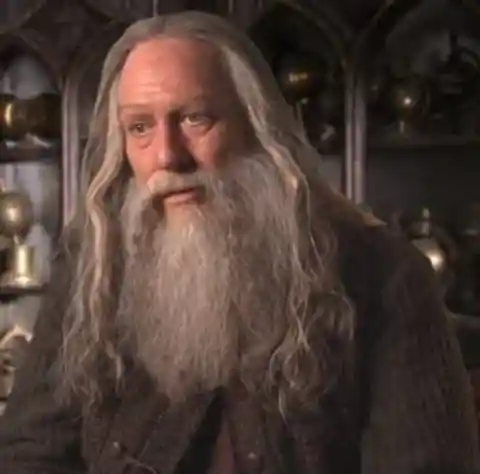
Aberforth Dumbledore's early life was marred by tragedy and loss, shaping him into a person familiar with sorrow. The imprisonment of his father for defending his sister Ariana left a deep scar on the family. This event was followed by another misfortune when their mother died in an accident. These successive tragedies cast a shadow over Aberforth's youth, forcing him to confront grief and responsibility at a young age. The loss of his mother particularly affected him, as it left the Dumbledore siblings to fend for themselves.
The death of his beloved sister Ariana was a pivotal and heartbreaking moment for Aberforth. This loss was compounded by the later death of his renowned brother, Albus Dumbledore. Each loss in Aberforth's life seemed to reinforce a pattern of pain and suffering, leading him to develop a resilience to heartache. Despite these challenges, Aberforth continued to carry the weight of his past, learning to live with the deep-seated pain that had become an integral part of his existence. His story is a testament to enduring in the face of relentless adversity.
Ariana Dumbledore
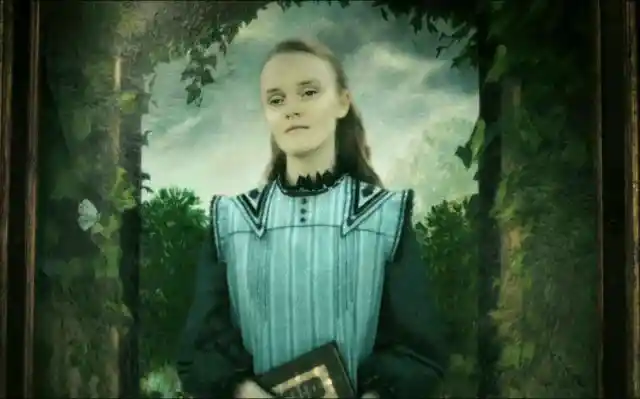
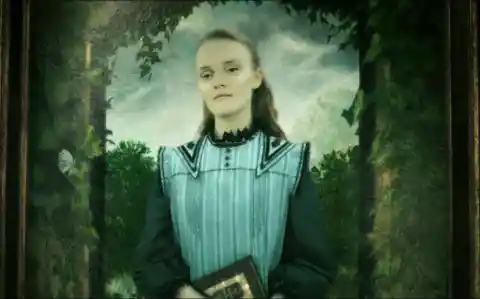
Ariana Dumbledore's early life was marked by a traumatic incident that left her unable to control her magical abilities. This lack of control led to unpredictable and often dangerous outbursts of magic. Her brothers, Albus and Aberforth, did their best to care for her, but the challenge was immense. Ariana's condition was not only a source of constant worry for her family but also a hidden danger, as her magical powers were erratic and beyond anyone's control.
The most tragic manifestation of Ariana's uncontrolled magic occurred when she was just 14 years old. In an unfortunate and uncontrollable burst of magic, she caused a devastating explosion. This tragic accident led to the death of her mother, a heartbreaking event that deeply affected the Dumbledore family. This incident not only brought immense sorrow but also significantly altered the course of their lives, highlighting the sometimes perilous nature of magic when it goes awry.
Dementors
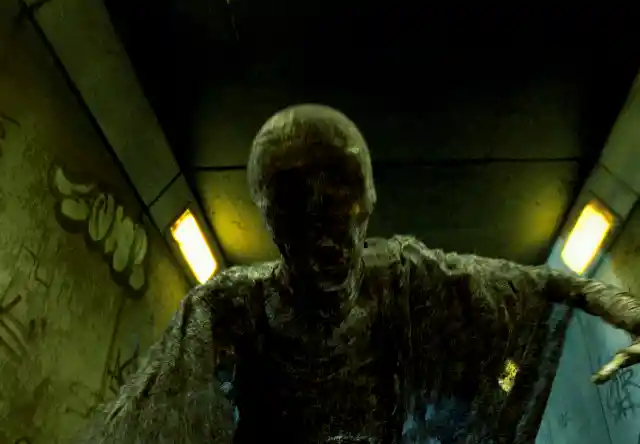
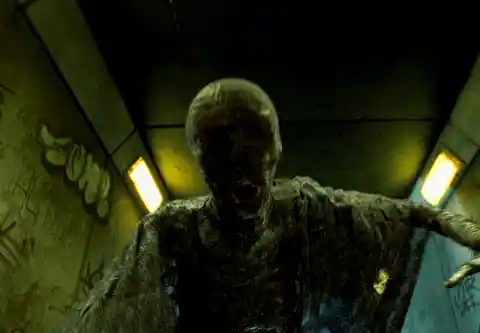
Dementors, the ominous creatures in the Harry Potter series, have a profound effect on those around them. They drain the joy and happiness from people, leaving them feeling hopeless and desolate. This effect mirrors the debilitating impact of depression, where individuals feel engulfed in despair, unable to see a way out. J.K. Rowling's creation of Dementors was inspired by her own experiences with depression, making them a powerful metaphor for the overwhelming sense of sadness and loss of hope that characterizes this condition.
Rowling's journey through her struggles with depression is reflected in the way her characters deal with Dementors. Just as she found her way through the darkness of depression, her characters learned to summon their Patronuses, a magical defense representing inner strength and positivity. The act of conjuring a Patronus to repel Dementors symbolizes the power of hope, resilience, and the strength of the human spirit to overcome despair. Rowling's triumph over depression is mirrored in her characters' victories over these dark creatures, offering her readers a message of hope and perseverance.
Hermione Granger


Hermione Granger, known for her brilliance and resourcefulness, faced a heart-wrenching decision during the hunt for Horcruxes. To protect her Muggle parents from the looming threat of Death Eaters, she chose to alter their memories. This act of love and sacrifice involved sending them to Australia, far from danger. However, the most painful part of this decision was erasing all evidence of her existence from their memories. This selfless act was a testament to Hermione's courage and her deep commitment to fighting against dark forces, even at the cost of her happiness.
The impact of Hermione's choice was profound, both on her and her family. While it ensured her parents' safety, it also meant they would live without any knowledge of their daughter. This separation was a heavy burden for Hermione, who had to carry on knowing her parents were oblivious to her existence. Her ability to make such a difficult decision highlighted the complexities and sacrifices involved in the battle against evil. Hermione's story is a poignant reminder of the unseen scars and personal sacrifices made by those who stand up against darkness.
Mundungus Fletcher
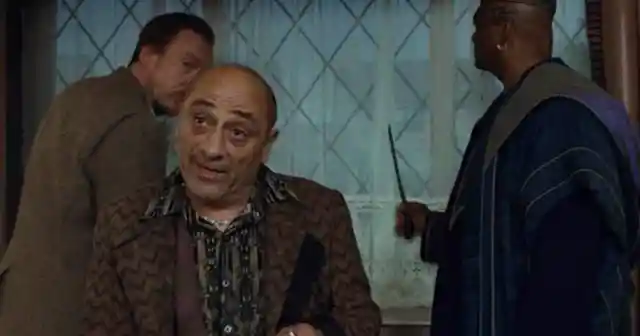
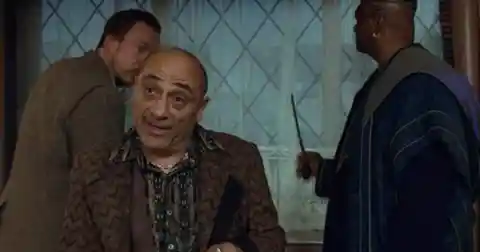
Mundungus Fletcher's participation in the Battle of the Seven Potters was marked by his characteristic lack of courage and responsibility. Tasked with impersonating Harry Potter, he was part of a crucial plan to protect the real Harry from Voldemort's forces. However, when faced with the actual danger of being pursued, Mundungus's instinct for self-preservation took over. His immediate reaction was to flee, abandoning his post and leaving his comrades, particularly Mad-Eye Moody, in a vulnerable position. This act of cowardice was in line with his reputation as a petty criminal, often looking out for himself rather than the greater good.
Mad-Eye Moody, a seasoned Auror known for his bravery, was left to face the attackers alone due to Mundungus's desertion. Outnumbered and without the support he was supposed to have, Moody was at a significant disadvantage. Tragically, he was struck by the Killing Curse, a direct consequence of Mundungus's abandonment. This incident not only resulted in the loss of a great warrior for the Order of the Phoenix but also highlighted the consequences of betrayal and cowardice in times of conflict. Mundungus's actions served as a stark contrast to the bravery and sacrifice exhibited by others in the battle.
Severus Snape
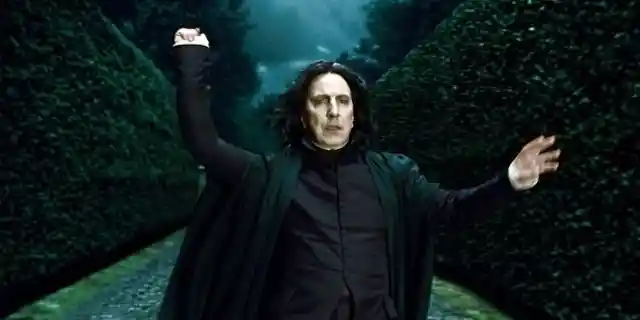
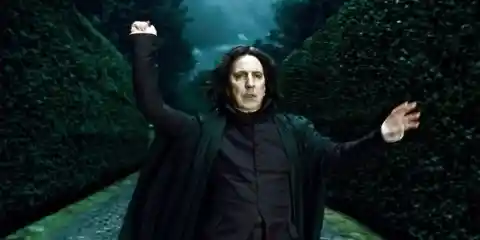
Severus Snape's role in the wizarding world was a complex and dangerous one, marked by deep loyalty and a hidden agenda. His exceptional talent as a wizard was matched by his skill in deception. For years, Snape played the perilous role of a double agent, serving Dumbledore while pretending to be loyal to Voldemort. This act required immense courage and cunning, as any slip could have cost him his life. His motivation for this risky endeavor was a promise made to Lily Potter, a testament to his enduring love for her and his commitment to honor her memory.
Snape's dedication to protecting Harry Potter, despite his animosity towards Harry's father, James, showcased a level of bravery and selflessness that few could match. His actions were driven by a complex mix of love, guilt, and duty. Harry Potter's recognition of Snape as the bravest man he ever knew was a profound acknowledgment of Snape's sacrifices. This recognition highlighted the depth of Snape's character and the immense burden he carried, silently and stoically, for the greater good. His story is a poignant reminder of the power of redemption and the capacity for change in even the most unlikely individuals.
Harry Potter
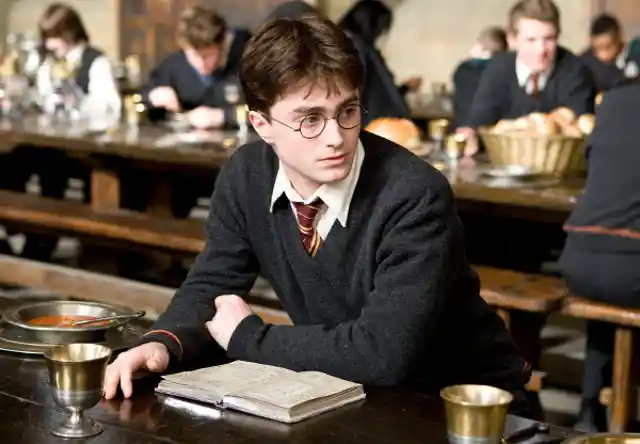

Throughout the Harry Potter series, Harry faced numerous life-threatening situations, yet the true peril to his life was uniquely tied to Lord Voldemort. The prophecy that bound their fates together stated that one had to die at the hands of the other. This connection meant that while Harry faced various dangers, his life was not truly at risk unless he was in confrontation with Voldemort. This peculiar twist of fate made every encounter with Voldemort intensely significant, as it was the only time Harry's life hung in the balance.
On the other side of this prophecy was Voldemort, who also found his fate inextricably linked to Harry. Despite his immense power and relentless pursuit of immortality, Voldemort could only be defeated by Harry. This mutual vulnerability created a complex and intense dynamic between the two characters. The prophecy not only dictated the conditions of their ultimate showdown but also highlighted the deep connection and interdependence between Harry and Voldemort. Their intertwined destinies drove the narrative, building towards the inevitable climax where the prophecy would be fulfilled.